Appeals Court Says Trump Must End Los Angeles Deployment by Monday

© Alex Welsh for The New York Times

© Alex Welsh for The New York Times


我们曾将性命相托的疫苗,其掌舵者竟可能不清白?
这是一则被严重低估的新闻。
今年11月28日,一纸公告落下。中国科协宣布,撤销杨晓明所获全国创新争先奖奖章、证书。这奖颁了没几年,收回去的速度,委实太快了些。

奖章被装进盒子,证书被收回档案室。仪式无声,却比任何审判都响亮。
那个曾经站在人民大会堂、世卫组织讲台、央视镜头前的“疫苗英雄”,此刻在纪律审查的文件里,成了一个被标注“涉嫌严重违纪违法”的名字。
一年多前,2024年4月23日,杨晓明因涉嫌严重违纪违法,被罢免了第十四届全国人民代表大会代表职务。
他的犯罪背后有着怎样的秘密?
时间往回倒带,倒到一九六二年二月,甘肃舟曲。
一个藏族男孩出生,他后来沿着一条标准的精英路径前行:西北民族学院预科、兰州医学院、兰州生物制品研究所。然后,是令人眼花缭乱的国际履历:日本国立预防卫生研究院、美国FDA、美国NIH。这些字母缩写,是他学术护照上最闪亮的签证。
回国后,他成了“救火队长”和“掌门人”。从兰州到武汉,再到北京;从研究所所长,到国药集团总工程师,再到中国生物董事长。
他手里握着疫苗的“兵符”——脊髓灰质炎、百日咳、轮状病毒……最后,是那个改变世界也改变他命运的新冠病毒。

新冠三年,是杨晓明人生的“高光时刻”,也是“聚光灯时刻”。
他带领团队,宣称用三百三十五天的“中国速度”将灭活疫苗推向世界,成为首个被世卫组织批准的发展中国家Yi苗。
那段时间,他频繁出现在新闻里,白大褂,坚定的眼神,讲述着“科技抗疫”的故事。他成了中国工程院院士有效候选人,成了中国医学科学院学部委员,成了“为抗击新G肺炎Yi情、保障人民生命健康做出重大贡献”的标杆。
然后,聚光灯骤然变色。
2024年3月,西藏自治区人大常委会罢免了杨晓明全国人大代表职务;
四月,全国人大常委会公告其代表资格终止。
理由是那九个字:涉嫌严重违纪违法。
具体何事?公告未详述。但民众盯着他那几个头衔:中国医药集团有限公司原总工程师、首席科学家。医药、疫苗、首席科学家、违法违纪——这几个词放在一起,足以在舆论场引爆一场无声的海啸。
人们开始回溯。回溯他在疫情期间的每一次亮相,每一句承诺;回溯中国生物yi苗的快速审批与全球使用;回溯那些关于YI苗有效性、安全性与公平分配的争议……
疑问像野草一样生长:那些“全球首个”“重大贡献”的光环下,是否藏着利益的藤蔓?在性命攸关的Y苗研发与审批链条上,这位“总工程师”的手,究竟触碰了科学与良知的边界,还是越过了纪律与法律的红线?
舆情背后,是几种复杂的民众期待在翻滚。
其一,是对“专家”祛魅后的愤怒与幻灭。
疫情将科学家、医生推上神坛,公众期待他们是纯粹的、超然的救世主。而当光环人物从“国士”沦为“嫌犯”,这种坠落感引发的不仅是失望,更有被背叛的怒意。
我们曾将性命相托的Y苗,其掌舵者竟可能不清白?
其二,是对医药领域“深水区”腐败的深层次担忧。
药价虚高、采购黑幕、审批寻租……这些沉疴痼疾,是否已侵蚀到Yi苗这一最应纯洁的“生命防线”?
杨晓明案像一根探针,刺痛了公众对医疗健康领域公平正义最敏感的神经。
其三,是一种更为理性的期待:期待真相,期待程序正义。
舆情并非一味“猎巫”,公众要的,不仅是一个人的倒下,更是一个领域的清朗,是一套能防止“下一个杨晓明”的透明机制。
杨晓明的人生剧本,从甘肃小镇写到世界舞台,再从荣誉之巅跌入审查漩涡,充满了时代隐喻。
他曾是“知识改变命运”的样本,是“科技报国”的象征,最终却可能成为“权力腐蚀专业”的注脚。
他研制的Yi苗,注入亿万人臂膀,抵御了一种病毒;而他涉嫌的“违纪违法”,则如另一种病毒,侵蚀着公众对科学权威与制度保障的信任。
杨晓明案,留给时代一剂最沉重的“反思针”。
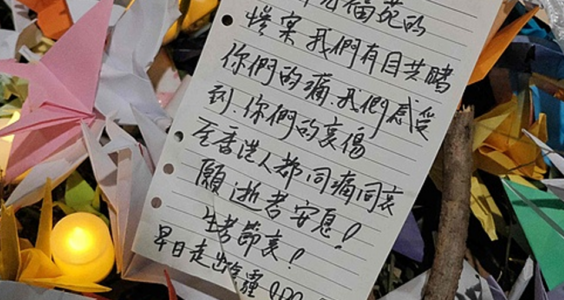
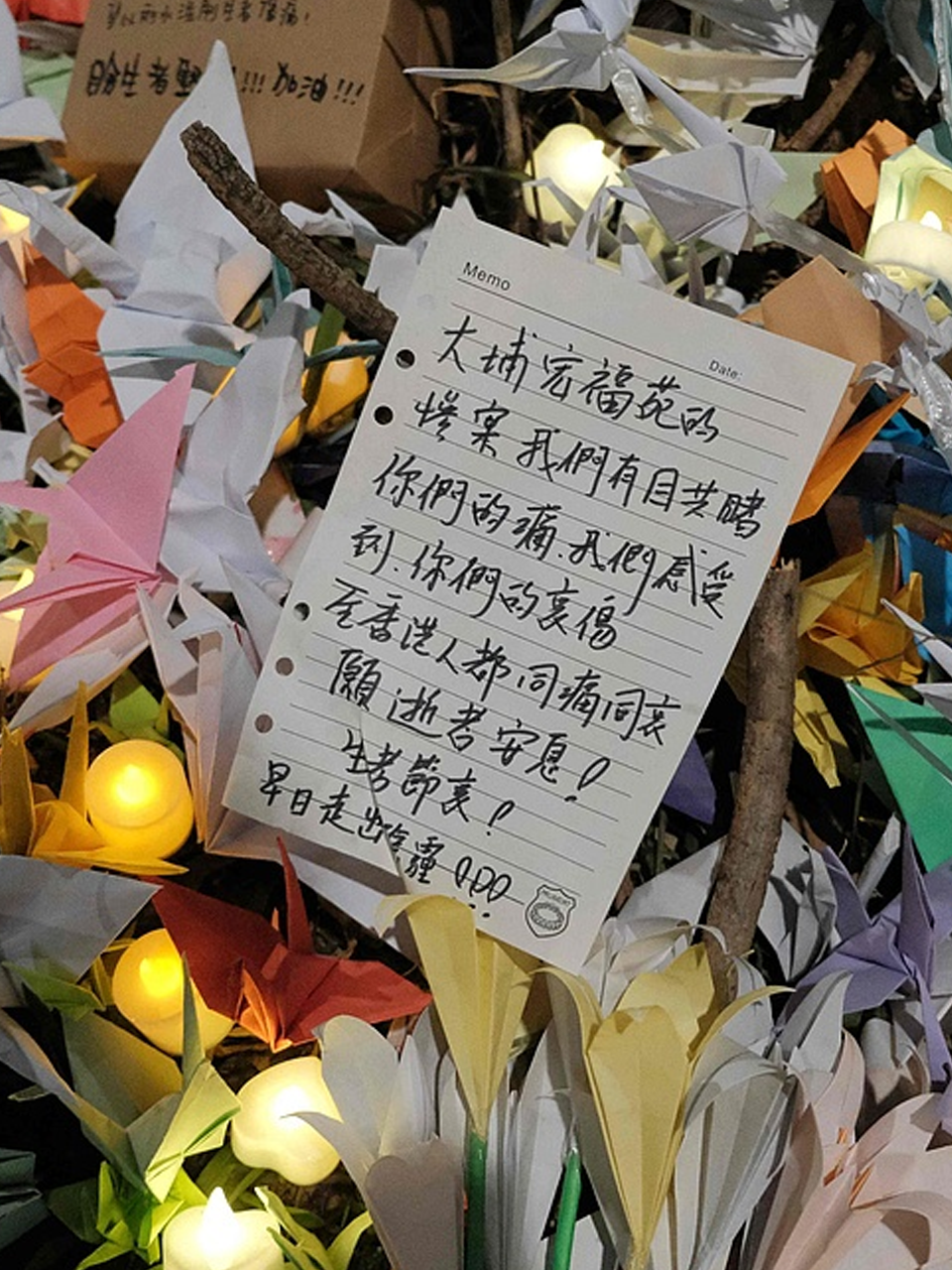
Tracy的公公最后在家中厕所遇难,他手里紧握身份证,身上裹着两张打湿的棉被。这个场景是家属认领遗体照片时目睹的,公公身体不好,长期依靠呼吸机与轮椅生活,Tracy特别想称赞他好聪明,“可以想象,他当时是平静面对死亡,手里握着身份证,害怕家人找不到他。”
香港大火已经过去整整两周,根据最新统计数字,这场史无前例的、七栋高楼同时着火的灾难造成160人遇难,其中最年长者97岁,最年幼的是1岁的婴儿。
大火已被扑灭,但漫长的哀伤才刚刚开始。香港的社会服务机构在火灾后立刻行动,为灾民提供免费的心理支援和殡葬支持,我们联系了十家机构,很多社工仍在随时待命,全力支援失去亲人的家属,难以抽出时间,也有社工因临时接到任务,取消了交谈,最终五名社工在工作间隙跟我们进行了交流。
12月5日,我在zoom会议中见到了香港圣公会福利协会安宁服务总监陈慕宁,她和社工团队正在支援遇难者家庭,这是她连续工作的第十二天,她需要直面很多老人孩子的死亡和家属的悲伤,同时要隐藏起自己的感受,偶尔工作结束后回到家,她还会默默流泪,“生命的突然离去,实际触动了我们每一个人。”
陈慕宁和社工同事驻守在大埔的社区会堂,提供免费的情绪支援,并陪伴有需要的家属完成遗体认领过程,“我们其实是想减轻整个家庭在这件事中的冲击。”她告诉我,对于家属来说,认领遗体是最艰难的一步。
火灾发生几天后,遇难者的遗体陆续被转移到了公众殓房,各个社区会堂先开放供家属以照片辨认遗体。家属们排成长队进入会堂,完成手续走出门后,紧紧抱住彼此痛哭。一些家属身旁有两名社工陪伴,他们不适应媒体镜头,社工有时会抱住家属,举起衣服遮住家属的脸。
2025年12月3日,香港大埔区宏福苑发生致命性火灾后,居民返回家中收拾物品。
辨认遗体前,有一到两名社工会事先与遇难者家属沟通,了解家庭构成和家属的心理承受能力。有的老人家和病患成员可能不适合参与整个过程,社工会建议家属选出几个代表来完成程序,减轻对其他家庭成员造成的心理冲击。
认领遗体照片前,陈慕宁团队的社工会向家属收集遇难者的特征、身穿衣服、最后身处的位置、身上佩戴的首饰等,再与警方沟通。这些线索有助于警方及法医筛选遗体的相片供家属辨认,他们会尽量避免家属看到不必要、不对应或者过度冲击的照片,极力减少家属会遭遇的创伤。
看完照片后,家属会前往富山殓房的公共停灵处进一步确认,这是香港最大的公众殓房,有一万八千多平米。社工们会先与法医沟通协调,事先了解遗体大致状况,再提供“预告”——为家属简单描述遗体状况,让家属有心理缓冲、做好心理准备。
陈慕宁说,因为随着时间推移,遗体的状态会发生变化,当家属真正见到遗体时,情绪往往剧烈波动,会更加迷惘、彷徨、无措。最终家属可能确认出是亲人的遗体,也可能认不出来,“照片似乎是,但实际遗体却不是。”
若遗体无法辨认,就需要进行 DNA 比对。整个流程会因此延长四到六个月。漫长的等待会让这些家属特别无力、煎熬。“他们尚未成为丧亲者,但也预料自己随时可能接到死亡的消息。”陈慕宁说,社工会持续跟进这些家庭,帮助他们进行心理建设。
火灾后,慈善殡仪机构“毋忘爱”的创始人范宁遇到了几位迟迟不愿认领遗体的家属——他们当时还无法承受残酷的事实。
范宁是一位外科医生,参与过汶川地震和新冠疫情的丧亲者支援,经验丰富。他告诉我,每个人的哀伤反应都不同,家属不是故意逃避,而是情绪尚未抵达那个位置,“一定要允许他们按照自己的节奏去处理,而不是用行政手段逼他们、push他们完成程序。”
同时他也提到,安排葬礼的重点也不在“尽快推进”,如果因推进太快、未能满足家属的真实需求,他们日后往往会感到后悔、遗憾,甚至怀疑自己在亲人的身后事上做了错误决定,这反而会带来二次创伤。
截止12月9日,仍有6人失联。警务处伤亡查询中心主管曾淑贤此前告诉媒体,“因为有些遗体已经烧成灰烬,所以我们不排除,最后未必能够将所有失联人士从(火场中)带出来。”说这句话时,她声音哽咽,忍住眼泪后又说了一句,“sorry”。
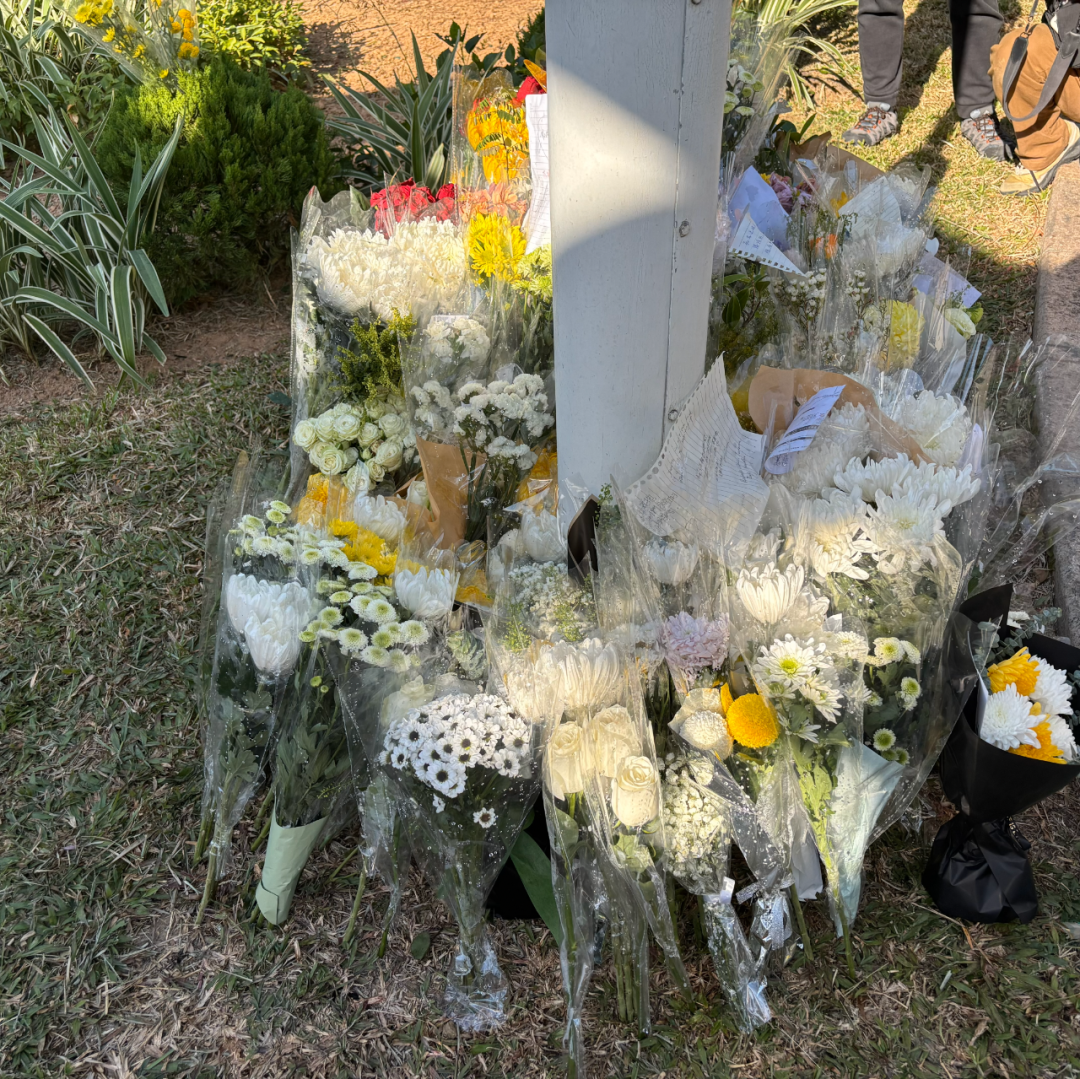
香港市民献花悼念
香港生死学协会总监梁梓敦,有接近20年的安宁服务社工经验。他告诉我,亲人失联的家庭是此次火灾中最需要支援的人群之一。因为在丧亲者支援中,关键的第一步就是让家属确认和接受死者去世的事实,哀伤才会真正开始流动、显现。而当没有遗体时,家属会产生“模糊性丧失”(ambiguous loss),这种丧失更复杂,也更难处理——“从客观上你知道他们大概已遇难,但主观上却会不愿承认。家属会陷入一种非常矛盾纠结的状态:我到底要不要相信他们已经去世了?”
让家属获得一个有仪式感、有意义的告别,是修复灾后创伤的重要部分。有些遇难者家属在与社工交流的过程中,提出了一个并未被预料到的需求——他们不希望亲人的遗体经历火葬。
陈慕宁解释,许多遇难者遗体都有烧伤,部分家属不希望亲人再次经历类似的痛苦,想要寻求土葬的方式安葬死者。虽然土葬在香港并非主流的殡葬方式,但社工们会尽力协调资源,帮助妥善安排。
一位年轻人在火灾中不幸丧生,他的家人第一时间询问圣公会的社工能否举办日本文化的葬礼,因为年轻人生前喜欢看日本漫画、听日本歌曲,家里还摆满了动漫公仔。社工回复,可以根据年轻人的兴趣与生活习惯举办个性化葬礼,家人听后感到宽慰,陈慕宁说,“他们最后还能花一些心思、按照逝者的喜好,好好送别他。”
香港劳工及福利局局长孙玉菡接受采访时提到,有235名外籍佣工在大埔宏福苑工作,94人来自菲律宾、141人来自印尼。根据最新数字,至少10名外籍佣工在火灾中去世。对于这些工人,陈慕宁说,“即使她们是外籍,家人在外地,我们也希望能够让家人庄重地接她们回家。”
对于那些没见到亲人遗体的家庭,梁梓敦设想了一些告别方式——可以将逝者的照片、生前使用过的物品和衣服放进棺木里,形成一个“衣冠冢”,同时邀请家属写下纪念文字。
人们需要道别,但有时候来不及道别。12月9日,曾淑贤告诉媒体,“我们收到查询,一位 90 岁婆婆在找一位 100 岁的婆婆,是她住在宏福苑的朋友。我们查询了资料,这位婆婆在 11 年前已经去世了。”
一名香港女士在家中听到了这个故事,她在社交媒体上感慨,“这样一段不需修辞的陈述,直击心灵。”她想起了李香琴旁白、关淑怡主唱的《三千年后》中的那段念白:
“再见,不要怪我第一句就跟你说再见,因为我真的是专程来向你道别。我不会说,我老了,我只会说,我在这里太久了。时间久了,难免知道人总会慢慢把过去淡忘,也会看着一些东西无声无息地消失。”
“毋忘爱”总干事Grace最初在支援过程中,会碰到那种异常冷静的遇难者家庭。
有一名先生,本来拥有幸福的四口之家,太太和两个小朋友都在大火中不幸遇难,独剩下他自己。最初,他要处理家人的身后事,面对各种文件、账单、琐碎的工作,他表现得格外平静,也许是没有时间和空间去回忆、纪念、流泪。
另一对夫妻的孩子和家政工人一起遇难。他们表面看起来并不像刚刚经历过大的灾难,每天都会翻出手机里孩子的照片,一张张给社工展示,一边绘声绘色地讲述,“孩子很乖的”,“最后一起吃饭,他那天很开心。”
在Grace看来,这种冷静并不意味着没有悲伤,更可能是情绪被压抑到最深处——“那些能够表达哀伤、说出自己感受的当事人,相对会比较容易支持他们。而需要投入更多关怀和照料的,是那些不愿表达、拒绝承认的人。”
在现场支援时,社工们做的最多的工作,就是在一旁陪伴家属——想看照片,就陪着看;想讲,就默默地倾听;想静静地坐着,就陪同沉默。社工往往不急着说很多话,而是给他们一个拥抱,那种在一起的感觉,比任何言语都更能让人感到不孤单。
在宏福苑住宅区附近悼念悼念现场,痛哭的女士。©视觉中国
悲伤之余,社工们还观察到,火灾过后最普遍的情绪之一是愧疚。火灾当天,一位先生接到长辈最后打来的求助电话,长辈年迈、行动不便,他告诉对方,“先找地方避一避,消防员和救护车很快就会到。”但后来火势太猛,长辈没能等到救援的到来。很多丧亲者之后会不断想起和家人的最后一次对话,也会愧疚,为什么未能将家人带离火灾现场。
Tracy的丈夫也自责没有让父亲带上呼吸机逃生,她的婆婆则自责没有在老伴身旁陪伴,两人携手生活四十多年,非常恩爱,她突然失去伴侣难以接受。Tracy丈夫的现实压力更大,他要假装坚强冷静,照顾家中老小的情绪,还要在毫无经验的情况下处理身后事和各种paperwork。
幸存者李先生也在媒体镜头面前,多次表达自己的内疚。被困在家中等待救援时,他听到门外有呼救声,于是弄湿毛巾捂住口鼻,冲了出去,最后他成功把邻居老夫妇救回家中,三人当时已经非常接近火源。
这对夫妇告诉他,他们听到一位印尼家政工姐姐,在走廊喊婆婆。李先生想再出去找她们,但屋外一片漆黑,无法分辨方向,他也再听不到呼救声。
最终,李先生和老夫妇在下午五点左右获救,一个小时后,那位婆婆和家政工一同遇难了。他说,“(工人)姐姐没有丢下婆婆离开,她很勇敢。”
李先生获救后收到很多称赞,“不仅救了自己,还救了两个人,你很厉害,你是英雄。”但每当听到这些话时,他都很心痛,陷入一种深深的自责,“感觉有两条人命在我面前,没有把握好我们就走了……我没有再开门出去尝试找找,如果逃出去之前我能找到,她们不会在六点死亡。”
这位遇难婆婆的女儿知道李先生的遭遇后,通过媒体转告他,“谢谢你,让我知道在最后时刻有人在我母亲身边,你已经尽力了,不要内疚。这一路很漫长,我很感谢有朋友一起哭泣。”
社工们还不得不面对更多激烈的情绪。一些老人失去了孙子、孙女,完全不能接受,会愤怒地控诉:“我平时求神拜佛,为什么没有保佑我们?”有人悲痛地说,“我不想做人了!”也有人因为至亲离世出现放弃生命的念头,面对这种情况,社工会和临床心理专家一起介入,进行危机干预,并长期提供心理支援和创伤治疗。
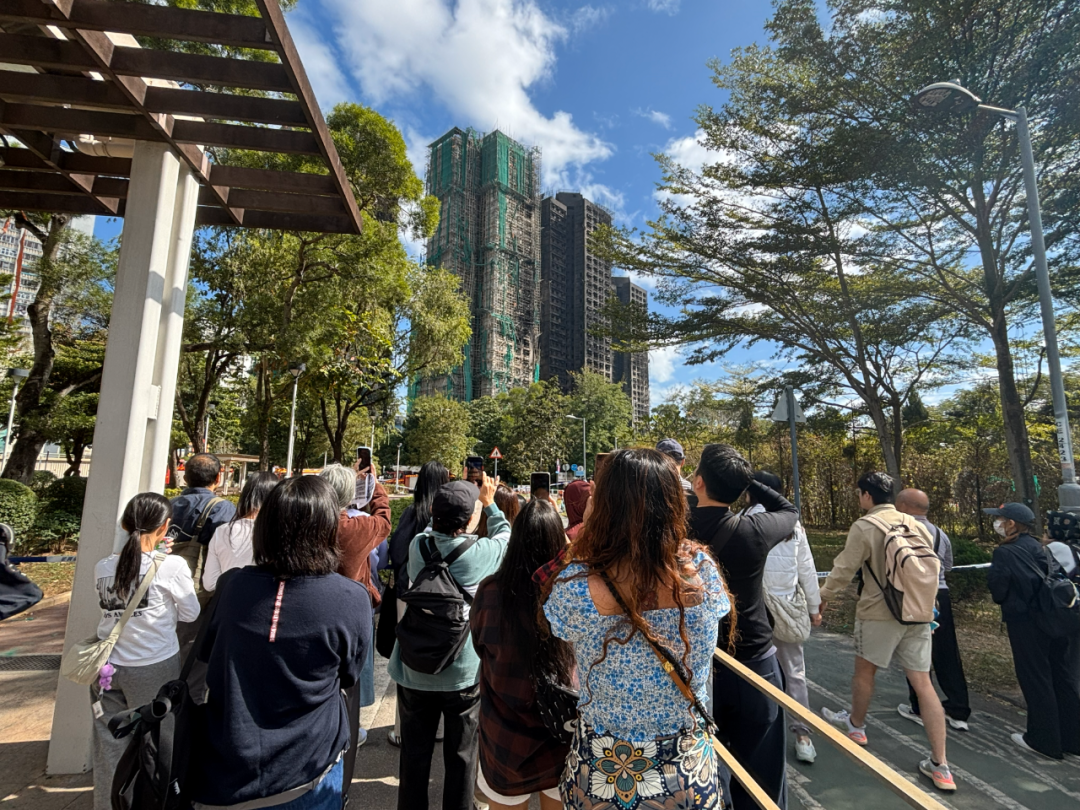
被烧黑的宏福苑大楼前的市民
范宁告诉我,愤怒是哀伤的一个必经阶段,尤其当这场火不是天灾,而是人祸。当家属骂人、不满、情绪激动,讲一些旁人难接的话时,都有原因。因为他们的内心处于极度的焦急和痛苦中,他们得不到答案,正确的支持方式是——“我们要容许愤怒、不接受的情绪存在,给他们一个安全的空间,让情绪发泄出来,而不是否定这种情绪。”
但在这一阶段,“毋忘爱”的社工们不会尝试解释事故原因,也不会引导和帮助家属“寻找真相”。一是因为他们不是专业调查人员,二是范宁认为,“即便日后有调查结果,家属也不一定能接受。可能一家人里只有一个人接受,也可能一个人都接受不了。”范宁说,“有些人甚至要穷尽一生去寻找这个答案。”
火灾发生后,一位灾民在网上发帖说,“确认家里人和老人家都走了,只剩下我自己一个。好难熬。不是要钱,也不是发 Payme code 求打赏,只是想要一点关心。不知道可以去哪,现在身上只有一个上班用的背囊。”
一位香港市民在评论区回复,
“我见你好像已经没有力气处理一些行政的事情,例如申请你应得的资助。你想不想我陪你一起去处理?我最近状态挺好的,而且我处理文书方面很在行,又快又准。如果你不嫌弃,我煮饭也很好吃的,花胶冬菇鸡煲你觉得怎么样?请你吃,好不好?吃点米饭,肚子暖了,人也会更有力量。
谢谢你走上来让我们看到你的伤口。这真的非常不容易,但你做到了。不如也让我们陪着你吧,陪你慢慢行多一步,可能又有一步,甚至再多一步。不急,不需要快。油也不用加…..你一定要记得,我们都是同根生、一样迷惘的香港人。你只要说一句「需要」,就一定会有人来陪你。坐着发呆也可以,吃个饭也可以。知道吗?”
梁梓敦认为,有余力的香港市民都可以为丧亲者做出力所能及的行动,“提供一个安全的环境给对方抒发情绪、用心聆听;当他们说‘我很想去某个地方或做某件事纪念死者’,就陪他去吧;还可以分担一些日常生活事务,也许他们现在暂住的房屋连厨房都没有,给他们买些食物、点些外卖,或者帮他们接孩子上下学。”他说。
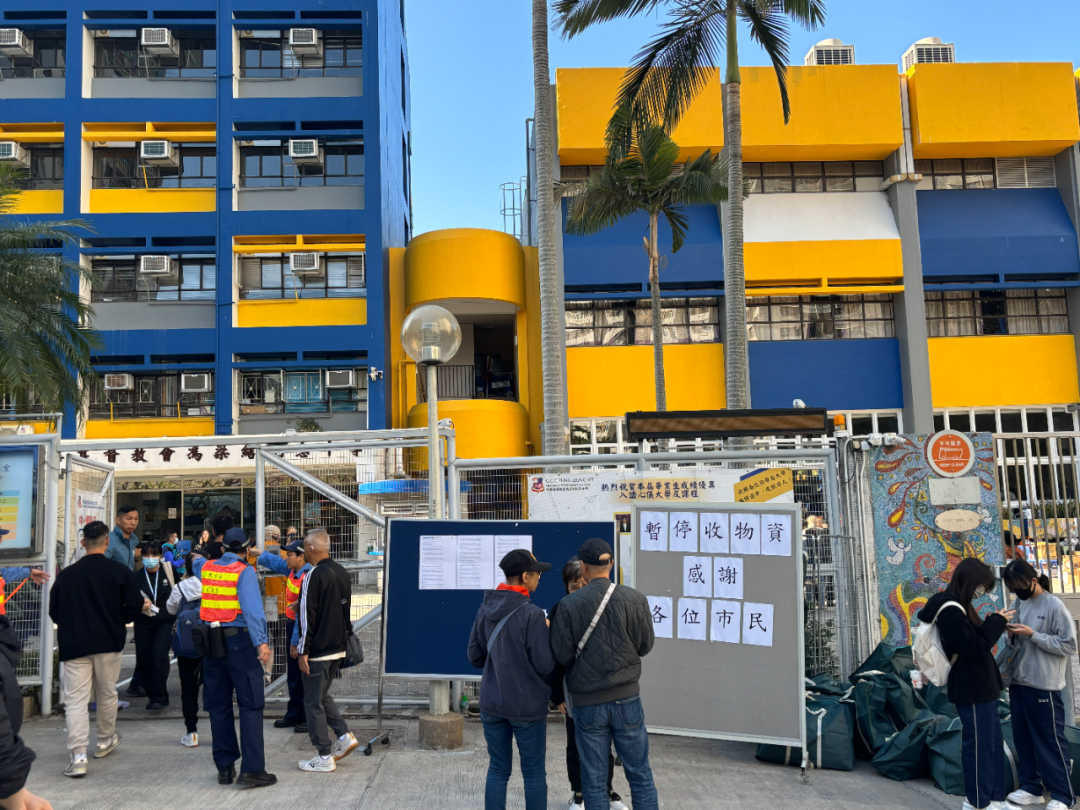
灾民安置点
火灾发生时,陈晓悠和家人都外出上班了,侥幸逃过一劫。出门前,陈晓悠只背了一个背包,里面装了随身物品:钱包、手机、水瓶、充电器和一些药物,包上还挂着她最喜欢的玲娜贝儿钥匙扣,这是她如今的全部家当。
自从父母离婚后,她就跟母亲搬来宏福苑,在这里相依为命十几年。最初单靠母亲一人工作,母女俩的经济压力很大,她们去找装修公司,买家具电器,一点点构筑起属于自己的新家。
家里存放着她们的日常用品、陈晓悠小时候的照片,还有一架钢琴。她告诉我,自己家并没有贵重物品,但邻居家的金器、珠宝、首饰全都被烧毁了,损失极大。
陈晓悠和母亲目前住在亲戚家,尽管失去了一切,但她觉得比起那些失去亲人的家庭,“我和妈妈真的是非常幸运了。”
不过她始终被一种不安和恐惧裹挟着———唯一的家人会不会突然离开?关心我的朋友真的会一直陪着我吗?暂时的栖身之所会不会出问题?她害怕所有拥有的东西会突然间再次失去,“好像没有什么是真实的。”
陈晓悠近几年得了抑郁症,火灾发生后,抑郁情绪更加严重,每天她都有好几次心跳加速、喘不过气、胸口发闷、反胃想吐。她不敢看太多新闻图片和报道,控制不了情绪;除了办必要的手续文件,她不敢再返回宏福苑;直到现在,她没有一天能睡着超过四个小时。
情绪影响行动。她无法应付全职工作,只能做收入有限的兼职,她的母亲已经退休了,政府的援助金足够她们支付未来半年到一年的开支,但之后的日子会变成什么样,她也不确定。她告诉我,“坦白说,不知道如何走下去,我走不出来,当我在家里哭泣躲起来的时候,世界一直在运行,在继续,不会等我,时间不会等我,人不会等我,我怕工作也不会等我。”
之前发病时,她会一个人躲在家里,不敢出门,她觉得自己的小房间是全世界最安全的地方,房间摆满了她最喜欢的玲娜贝儿公仔,她经常抱着玲娜贝儿哭,度过无数个抑郁失眠的夜晚。她也经常去迪士尼看玲娜贝儿,让自己获得能量坚持下去。
大火带走了陈晓悠最亲近的朋友,她一想到每晚陪伴她睡觉的贝儿们被烧毁,就觉得极度心痛,火灾后她在社交媒体上吐露情绪,“好后悔以前没有和它们拍一张全家福,到现在已经没有心力也没有钱再买一套回来。每晚都好困难,要吃很多安眠药才能睡一小阵,但每晚都会被吓醒,然后心跳狂飙。我不知道自己还能撑多久……RIP my Linabells and my lovely home。”
她的账号原本并没有关注度,但这则帖子在短短几个小时内,收到了上百条评论、上千条点赞,很多香港市民留言关心鼓励陈晓悠,还有几十名香港女孩给陈晓悠发私信说,要把自己的贝儿“弃养”让她收留。
接下来,陈晓悠陆续收到女孩们寄来的一箱箱快递,有迪士尼的钥匙扣、周边礼物、棉被和手袋,还有保存得很好、穿着漂亮衣服的公仔,一些女孩特地买了全新的娃娃送给陈晓悠,连贝儿身上的吊牌都没剪。寄件者中,有几位是迪士尼的女性工作人员。陈晓悠收到的公仔上附了很多心意卡,这些市民都很低调,没有写自己的名字,落款只写了“香港人”。
陈晓悠收到香港女孩寄来的玲娜贝儿公仔©陈晓悠
如今她拥有了一群“贝儿旅行团”,来自香港、上海、东京的迪士尼,大中小型号、KC挂件都有,快递多得陈晓悠差点搬不走,她不知道以后是否会有空间去收藏她们。
她发帖感谢所有关心她的香港市民,“我都唔知可以點樣答謝同報答你哋(我真的不知道还能怎样答谢和报答你们)。”同时调侃道,“我想講香港人真係好痴線呀”(好疯狂,好可爱)。
还有一位女生专门去了迪士尼乐园,找到玲娜贝儿拍视频,为陈晓悠加油打气。视频中,穿着紫色衣服的玲娜贝儿冲着镜头招手、比心、飞吻,这位女生特意为陈晓悠配上了文字和音乐,“妈咪,彪彪会在这里等你,妈咪要加油加油啊,每天都要好好休息,彪彪会等妈咪来看我呢。”
看着视频,陈晓悠泣不成声。
几位有心的女孩没有在寄完公仔后就消失,她们一直找陈晓悠聊天,陪伴她,关心她的情况,告诉她“什么时候、有任何需要都可以跟我说,”几名社工和心理辅导员也主动给陈晓悠留言,义务提供情绪支援。
陈晓悠从来没想到自己会受到这么多关注,一时间感到不安,隐藏了帖子,同时内心矛盾,“觉得自己其实并不配拥有这些漂亮的公仔。”
过去的陈晓悠一直都是独自面对抑郁症,这是一场孤单又无助的战斗,她也曾有过想要放弃生命的念头。但如今香港人无私奉献、不求回报的爱,让她在黑暗的日子里感受到了温暖。
陈晓悠看到不同大小的玲娜贝儿摆在半张床上,冲她微笑,陪着她睡觉,每一个都代表着女孩们满满的爱,她鼓励自己,要振作坚强起来,“知道有这么多人关心我爱我,我会为她们好好继续活下去。”她告诉我。
她也在社交媒体告诉关心她的香港市民朋友,“我知道你们最希望的,就是想我早点振作、能够开心好好生活。我会加油,我会努力的!”
12月4日,陈晓悠抱着一箱玲娜贝儿公仔,去了宏福苑献花悼念的地方,她希望把它们送给大火中逝去的孩子,以作纪念。她同时在公园附近看到了很多小朋友,这些孩子还在上幼儿园和初小,陈晓悠弯腰把公仔送给小朋友,问道:“你们愿不愿意收下我的玲娜贝儿?”
几位社工都告诉我,对香港来说,这次火灾是一个集体创伤事件。影响范围并不只局限在宏福苑,而是扩大到全香港——大火烧了四天才被完全扑灭,媒体一直在实况直播,很多市民都对遇难者家庭产生了强烈的共情和投射,救援人员也有不同程度的情绪崩溃。
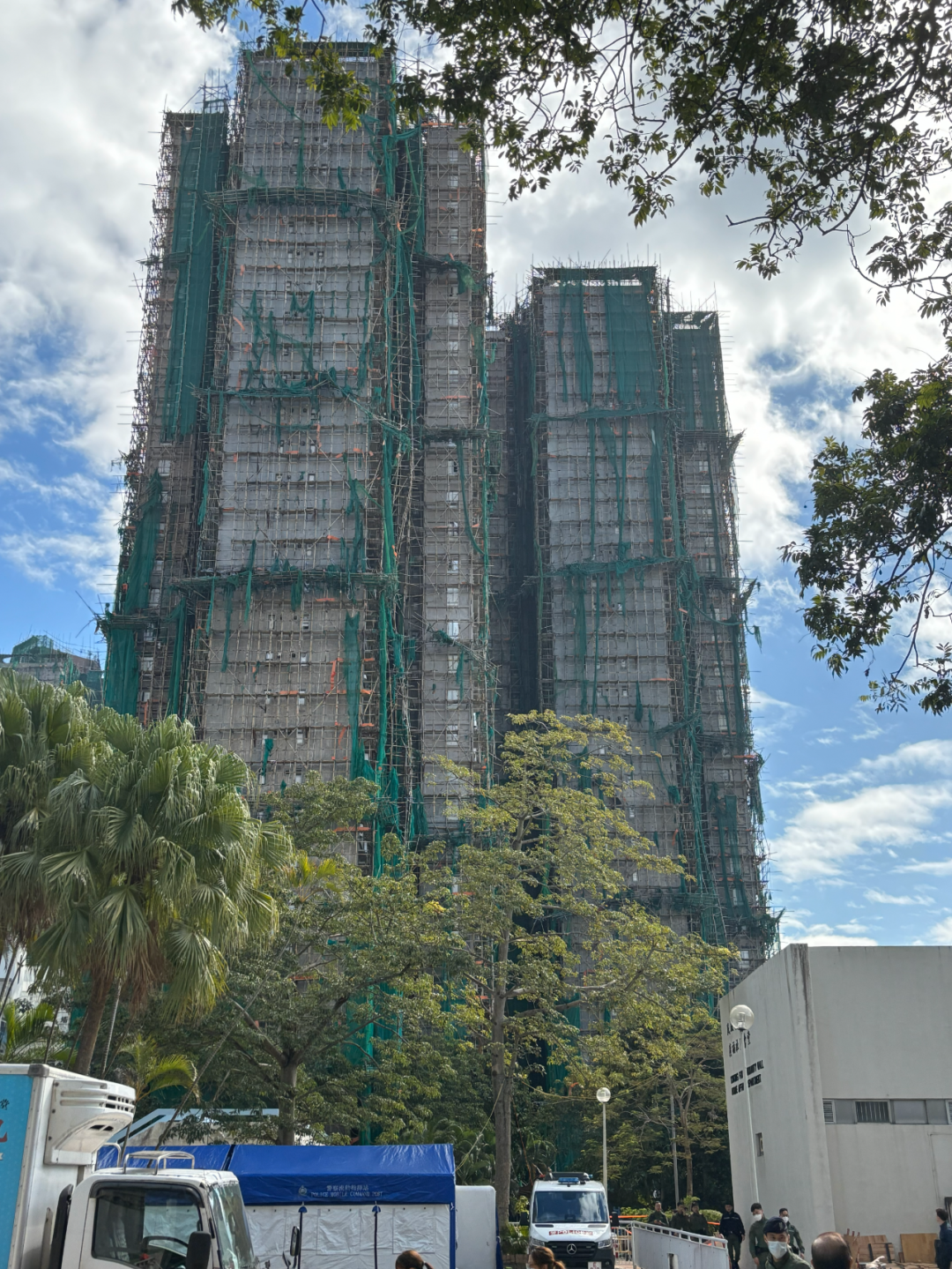
图/微博
火灾后的宏福苑大楼梁梓敦说,所有香港人或多或少都受了伤——无论是遇难者家属、宏福苑居民、伤者亲友、前线救护和支援人员、大埔区居民,还是普通市民,“我们都需要疗伤。”
火灾发生的周末,成千上万的市民们到宏福苑去悼念,长长的队伍排到了下一个地铁站。为了献上一束花、一个卡片,大家要排队好几个小时。现场一个白色花束上插着黑框白底的卡片,上面写着一个大大的字“痛”,右下角落款是:全香港人。
还有一些卡片上写道,“天灾?人禍?愿公義早日到來!!天有眼。”、“要檢討嘅唔係竹棚而係個制度”(要检讨的不是竹棚而是这个制度)。
人们在发生火灾的宏福苑住宅区附近悼念遇难者©视觉中国
范宁认为,哀伤的复杂程度和疏导方式,跟官方对整个事件的调查过程和处理结果是紧密关联的。他指出,这次火灾是一场人祸,从个人到社会都要进行反思,公民教育、家庭教育也都需要加强。同样重要的是,后续如何进行纪念活动、周年活动,怎么更好地让大家记得这件事,而不是忘记。
以往每逢十二月,香港的各种节日庆祝活动都会陆续展开,几天前有位牧师问梁梓敦,今年是否应该继续到街上报佳音?也有幼儿园校长询问,是否应继续举办圣诞派对?在这个悲伤的时刻,快乐庆祝似乎不合时宜,市民们担心——会不会让别人觉得我幸灾乐祸、冷漠无情?
但梁梓敦认为,这些活动应该继续举办,不过主题应从“欢欣喜乐”改为“平安”和“安慰”。他觉得面对如此重大的创伤时,最好的疗伤方法就是彼此连接,“唯有重新建立连结,才能让悲伤中的人得到安慰。”
他还建议,在参与节日活动时,如果看到有人流泪,请不要过于紧张,给对方一些安全的空间让他好好悲伤,然后送上一个拥抱或轻拍肩膀以示支持。也许不必说“圣诞快乐”或“新年快乐”,一句简单的“希望你平安,好好保重”就够了。
12月3日,遇难者头七当天,很多香港市民去九龙殡仪馆悼念,他们把一袋袋折好的元宝和纸钱扔进焚烧炉,在橙黄色的火光中,在场的民众齐声大喊,“收嘢啦”“收嘢啦”…….这是香港的殡葬传统,意思是请另一边的亡者接收东西,留意给自己的元宝。
一位香港摄影师Zenswk在社交媒体记录下当天的见闻——他和太太去了九龙殡仪馆,从下午到晚上,他终于学会了折最简单的那种金元宝。有人一路折,一路啜泣;有人一路念经,一路折;有人折多一会儿要回去做饭喂奶;有位婆婆是大埔街坊,微笑着说:“房子没了,怕自己一个,这里人多一点……”
这位摄影师觉得香港人很有意思,明明大家都没见过面,但会互相关心“要不要喝水”“要不要帮忙”,订书机没订针,就会有人拿一排针给你。“谢谢”“辛苦了”此起彼伏,不绝于耳。“你会看到一个打扮新潮、做了发型、美甲、化了妆的年轻漂亮女生,笨拙地偷看隔壁,慢慢成功折了一只又一只金元宝;你会看到背着H牌包、头发和指甲齐整的阔太,折到手指都染色了;你会看到好像下一句就要爆粗的叔叔,红着眼,静静地,一路折,一路折。”
他最后写道:
有啲人性
係無關血緣
係無關利益
係無關立場
願宏福苑街坊
離苦得樂
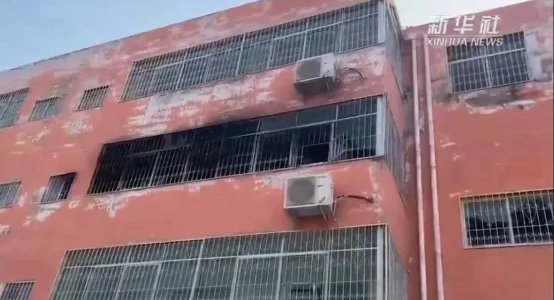
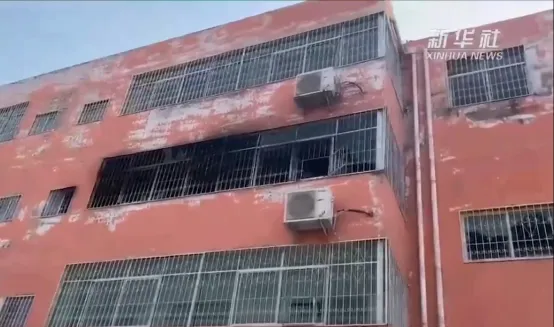
“他们为什么不公布结果?”
近两年来,范永归一直在追问这个问题的答案。
2024年1月19日晚11时,河南省南阳市方城县独树镇砚山铺村英才学校一宿舍发生火灾,导致13名三年级学生遇难,4人受伤。
范永归9岁的二儿子小南(化名)是遇难者之一。当年1月23日,方城县发布通报称,失火学校系寄宿制民办学校,当晚该宿舍住有32名三年级学生和1名宿管员(班主任)。
通报提到,调查组正在对事故原因、性质和消防器材配备等情况进行全面调查,调查结果将及时公布。
而事发近两年后,事故调查报告仍未公布。
近两年来,范永归通过各种方式申请、呼吁当地公开事故调查报告,希望给遇难孩子一个交代,给社会警醒。
2025年7月17日,他收到独树镇的信访答复:英才学校1·19火灾事故调查报告已结案。因涉及未成年人,根据未成年人保护法,事故调查报告不予公布。
“范永归收到的信访答复都为“事故调查报告不予公布”
范永归不满这份回复。“你可以把孩子的名字、年龄、家庭住址什么都隐藏,不能拿这个做挡箭牌,什么都不公布。”范永归说,“公职人员的具体处理情况不涉及未成年人,为什么也不公布?”
此外,上述回复提到英才学校法人代表、业务校长和班主任,因教育设施涉嫌重大责任事故罪已被方城县公安局羁押,正在移送起诉。
但该案的庭审多次推迟。“上个月通知说11月24日开庭,23日半夜突然通知开庭推迟。”范永归说,今年10月也曾收到开庭传票,亦被推迟。
与范永归的这些追问一同出现在公众视野中的,还有一份事发后家属和学校签订的赔偿协议。范永归和另一位遇难孩子的爷爷杨云朝告诉南风窗,当时不签协议见不了孩子,他们“被逼无奈”才签了。
但这份协议没让范永归停止追问。2024年11月,他从北京聘请了律师,向英才学校三位相关负责人提起刑事附带民事诉讼。
“不管花多少钱,都要给孩子一个交代。”范永归说。
范永归是在事发次日接到村支书的电话,“孩子在学校出点事,问题不大,赶紧回来。”
当时范永归和妻子在东莞开了一家早餐店。尽管村支书这样说,但范永归心想,“如果不严重肯定不会让我回去”。他感觉这事不小,但没想到是最坏的结果。
他们买了当天的机票,去机场路上,有人在孩子班级群发了新闻报道截图,说有13个孩子遇难。
“我当时一下子就有种不祥的预感。”范永归说,一到南阳机场,当地的安抚小组就把他们接去了方城县一家酒店。
那时,范永归已经猜到孩子不在了。所以到酒店后,他第一时间要求见孩子遗体,“安抚小组让我们别着急”,范永归说,随后有警方找他们采血,这印证了他的判断,“抽血肯定是为了比对DNA,孩子肯定是没了”。
事发第三日,范永归依然要求见孩子遗体,“他们以各种理由不让见”。随后不久,范永归得知有工作人员找他家人谈赔偿协议。
“我听到后情绪很激动,孩子都没看着,签啥协议?”范永归说。
同时,在方城县另一酒店,杨云朝也接到了先签赔偿协议的通知。“他们让我们赶紧签协议,不然就见不了孩子。”杨云朝说。
赔偿协议的部分内容/图源:看看新闻News
僵持到2024年1月22日早晨,范永归他们仍未见到孩子遗体,对方还是强调先签协议,“签了协议就能见到孩子”,范回忆说。
杨云朝记得,当时还有工作人员说,晚一天签协议,赔偿就少10万元。看看新闻News公布的一份1月22日上午家属和相关人员的对话录音中,相关人员说:“11点半前,如果咱签了,再追加10万元······这说得有点紧,请您谅解和理解。”
杨云朝说,他一个老农民没办法,就签了。
范永归不想让孩子遗体在殡仪馆躺太久,“那时候腊月初九了,我们这很冷”,他说,当时迫切想见到孩子,“被逼无奈签了那个协议”。
这份甲方为英才学校,乙方为遇难者家属的“赔偿协议”显示,甲方支付乙方一笔赔偿金,乙方收到赔偿款后,保证不再因此事向任何主体主张任何权利,不得干扰甲方正常教学秩序,并做到不诉不访,否则,乙方承担一切法律责任。
同时,协议约定双方负有保密义务,不得外泄。
“赔偿协议”部分内容/图源:看看新闻News
范永归在当晚8点多签的协议,9点就被带去殡仪馆。“进去前,把我手机收了,说不让拍照”,范永归说,接着让他再签火化协议,“不然不让进去里面看,那时候我脑子一片空白,只想着马上看到孩子,签了字”。
但最后,范永归也没有近距离看到孩子。
当时,他几个亲戚先去看了一眼,出来后就坚持不让他进去。“我猜是孩子被烧得很惨,他们怕我看了崩溃。”范永归说,最终,他远远看了孩子一眼。
随后,孩子遗体被火化。
他妻子因为前一天梦到孩子周末“回家”了,坚持要回去看看,就由孩子奶奶陪着去了。所以她们两人没有看到孩子最后一眼。“我也不忍心让她们看到。”范永归说,他瞒着妻子和母亲,就说孩子只是被烟呛晕了,除了脸上有灰,其他都好。
杨云朝也同样签了一份火化协议。之后,他看到孙子的遗体“被一个袄包住了,看不清”,他们那样看了看,遗体也被拉去火化。
火化结束,范永归和杨云朝他们各自捧着骨灰盒回了老家。范永归记得,当时回家,方城县那边有人陪同,到家之后,他们都走了。
“从那天开始,他们就再没有问过这件事,对家属的心理辅导、安抚什么的都没有。”范永归说。
事发3个月后,范永归就开始询问事故调查结果。
他当时向有关部门反映,之后方城县一部门受理,但一直没给回复,直到今年7月。“后来我又打电话问其他部门,他们说正在处理、跟领导在反馈什么的。”范永归说,他前后给各部门寄了近200封信件。
为此,他还专门买了一台笔记本电脑,用来写相关材料。同时,尽管只有初中学历,但他购入法律书籍自学,希望可以通过法律途径表达诉求。
事发后,范永归和妻子也没再外出,在当地开了一家小吃店。但没开多久,范永归因为孩子这事难以静下心来,就把小吃店转了,专心为孩子“要一个结果”。
范永归记得,2024年7月,方城县派了两个工作人员来跟他沟通。他从对方那里得知,事故调查报告在当年5月中旬就已完成,但因为涉及未成年人不能公开。
他接受不了这个理由。他觉得调查报告里可以不提未成年人的信息,但其他更多的细节需要向大众公布,尤其是学校的消防设施和公职人员的处理情况。
范永归告诉南风窗,当时孩子小南入住那个宿舍时,他曾去铺过床。宿舍在三楼,两间房,跟教室一样。
“从宿舍门口开始,靠墙一圈全是床,中间留了块空地。”范永归回忆道,床是上下铺,有铁的,也有木制的。房间前后两个门,后门平时是封起来的,只开前门。
他强调,当时宿舍里没有任何消防器材,灭火器、消防喷淋、烟感器等都没有。
英才学校着火宿舍旁边的宿舍堆满了学生床铺
“当时我们几个家长还在聊,这么大、这么挤的宿舍也没个灭火器。有家长和老师就说,现在学校都这样,老师就住在宿舍,放心吧。”范永归说,“要是当时宿舍里有灭火器,值班老师说不定就在前期把火灭了。”
杨云朝之前也去过孙子的宿舍。孙子3岁的时候,孩子母亲就离家出走,再未回来,父亲常年外出打工,一直都是他们老两口照看孙子。
杨云朝看到的景象跟范永归差不多,他印象中宿舍很挤,床铺沿着墙摆了一圈,中间空出两米见方的空地。
他们都想知道,事发时宿舍有没有消防器材,值班老师在不在宿舍内等细节问题。
2025年7月17日,范永归收到独树镇政府的答复。其中提到调查报告已出,但因为涉及未成年人不予公布。此外,事故涉及的有关单位相关负责人,按照干部管理权限,已由省市县纪委监委部门依规依纪做出了相应处理。
此后,2025年9月、11月,他又陆续收到三份内容几乎一模一样的回复。
英才学校着火宿舍所在楼道被全部熏黑
再到2025年11月21日,范永归和杨云朝他们收到通知,河南省消防总队要向他们告知火灾事故调查结果,但看前要先签保密协议。“我当时在忙,就没有去。”范永归说。
杨云朝去签了保密协议。看之前他手机被收走,进去后,“就是他们有人给我念”,杨云朝说,对方主要说了两点:一是英才学校某年月日着火了;二是简单的起火原因。
“但我们还是想让他们公开这个调查报告,让我们知道更多的细节。”杨云朝说。
12月12日,南风窗记者就是否公开1·19方城英才学校火灾事故调查报告一事询问当地有关部门。记者先拨打方城县应急管理局官方联系电话,通话提示对方未交话费,无法接通。随后,记者拨打方城县委县政府办公室电话,对方表示其不知晓此事,建议联系宣传部门。记者多次拨打方城县办公室提供的宣传部联系电话,均无人接听。此外,记者亦多次拨打方城县教体局联系电话,均无人接听。
火灾事故调查报告,依规依理都应公开。
应急管理部于2023年2月印发的《生产安全事故调查报告编制指南(试行)》规定:事故调查报告应当依法及时向社会公开。
“公开时,应以开展调查的事故调查组名义在政府网站或主流媒体上全文公开事故调查报告正文内容。对涉及个人隐私、商业秘密以及法律法规规定的其他依法应当保密的内容,应进行适当处理后方可公开。”
按照国务院《生产安全事故报告和调查处理条例》规定,事故调查报告应包含以下内容:事故发生单位概况;事故发生经过和事故救援情况;事故造成的人员伤亡和直接经济损失;事故发生的原因和事故性质;事故责任的认定以及对事故责任者的处理建议;事故防范和整改措施。
范永归和杨云朝他们尤其想让官方公开后三项的内容,他们认为只有如此,对死去的孩子才算有交代,也能借此警示全国其他学校,避免此类事件再次发生。
但范永归为申请公开事故调查报告做了很多努力,最后的答复仍是:因涉及未成年人,报告不予公布。
官方答复中,不公布调查报告的具体依据是未成年人保护法第103条:公安机关、人民检察院、人民法院、司法行政部门以及其他组织和个人不得披露有关案件中未成年人的姓名、影像、住所、就读学校以及其他可能识别出其身份的信息,但查找失踪、被拐卖未成年人等情形除外。
火灾一周年后,范永归在事发宿舍拍下的照片
华南理工大学法学院副教授、执业律师叶竹盛认为,当地以涉及未成年人为由不公开调查事故报告并不合理。
叶竹盛表示,未成年人保护法中所说的不得披露未成年人信息,主要是在一些涉及未成年人的案件中,比如未成年人被性侵或被杀害等,需要对未成年人信息保密,案件不公开审理。且在后续文书上传裁判文书网或作为典型案例发布时,隐藏未成年人的身份信息。
“但火灾事故具有公共性,公布事故调查报告是对社会的一个交代,而且(在对未成年人信息处理后)并不会影响到未成年人本身的权利。”叶竹盛说。
上海大邦律师事务所律师丁金坤也表示,未成年的隐私,本意是保护未成年的健康成长,避免被外界干扰,所以不披露其姓名、年龄、外貌及所涉之事。
“如果人已经罹难,则民事主体不存在,隐私权也消亡了,何来继续保护其隐私?”丁金坤说道。法律要保护的是事件中生者的未成年人隐私权,披露时不指向特定个体则可。调查报告适当处理后,应该向社会公布,接受监督,并汲取事故教训,警醒世人。
此外,之前也已有涉及未成年人火灾事故调查报告公开的先例。
2021年6月25日,河南省柘城县震兴武官宿舍发生重大火灾事故,造成18人死亡,11人受伤。
据央视新闻报道,该火灾中遇难的18人均为未成年人,其中最小的只有7岁。当年12月,事故发生半年后,当地就公布了调查报告。
另一方面,2024年11月,范永归委托律师向英才学校相关负责人提起了刑事附带民事诉讼,但该案的庭审已多次推迟。
范永归说,2025年10月24日,他收到法院传票,称当月29日开庭。但收到传票当天下午,法院又通知说推迟。11月17日,他再次收到传票,称24日周一开庭,然而23日晚11时左右,法院通知庭审再次推迟。
该案的庭审多次推迟
次日,范永归和几位家属去方城县法院询问情况,对方称检察院临时提交了新证据,被告律师需要核实。
“这样发传票后推迟的庭审已经两次了,口头上通知推迟的不知道多少次了。”范永归说。
两位执业刑辩律师告诉南风窗,实务中存在因新到证据而推迟庭审的情况,但比较少。
“如果是比较重大的案件,或者涉及人数比较多的,出现了关键的新证据,确实会延期,但也不会一延再延。”广东艾比利律师事务所合伙人侯浩楠称。
另一位不愿具名的律师表示,出现新证据,被告律师确实需要阅卷。“但如果屡屡推延开庭,就要考虑下背后的因素”,该律师称,“一直补证据不正常。”
针对英才学校相关负责人涉嫌教育设施重大安全事故罪一案被多次推迟庭审一事,南风窗记者联系了该案承办法官,承办法官当时表示:正在开会,一会再说。晚些时候,记者多次拨打该法官电话,未被接听。
事故发生后,范永归一直处在悔恨中。
他后悔自己把孩子送入这所学校,“让那么小的孩子去住校,听起来,我都觉得自己残忍。”范永归说,但那时被逼得没办法。
他们村有公立小学,但现在学生流失严重,老师只有两三个。范永归想让孩子接受好一点的教育。保安镇上也有公立小学,但距离他家有点远,需要骑电动车接送孩子。
“我妈老了,又不会骑电动车,一天接送多次,实在没办法实现。”范永归说。
而英才学校虽然归南阳市方城县独树镇管,但离范永归所在平顶山市叶县保安镇只有1公里多。范永归说,事故遇难的13个孩子中,有6个是平顶山地区的,其中多数都是留守儿童。
当时,他们夫妇不得不出去挣钱。
范永归说,他父亲2017年肺癌去世,前后4年的治疗,家里积蓄已空,还欠了“一屁股外债”。“最后没办法,才把孩子送到能寄宿的英才学校,结果出了这事。”范永归说,这辈子,“心里这个坎可能过不去了”。
范永归儿子小南成绩很好,屡获学校奖状
他更后悔的是2023年秋季学期开学时,没让孩子小南跟着大儿子转去另一个学校。
在小学毕业之前,范永归大儿子也在事发学校读书,毕业后去别的学校上初中。当时,他本来想让小南一起,去哥哥上初中的那个学校,“他们也有小学部,两人有个照应”。
但小南说在那边没朋友,不想去。范永归就决定让他再读一学期。
“当时已经跟孩子和老师都说好了,结果再过三天就放寒假了,却出了这个事。”范永归说,他一直后悔,要是当时再坚持一下,让小南跟哥哥一起转校,可能就没这事了。
有时他也后悔,当时不该让孩子选了个上铺。范永归说小南爱干净,不喜欢睡下铺,因为下铺容易脏。
“我想他要是在下铺,可能就跑出来了。”范永归说。
事故发生后,英才学校被勒令停止办学,但家长们对孩子的思念无法停止。
在范永归记忆里,儿子聪明、成绩好,且有着跟他年纪不匹配的懂事和孝顺。范永归经常拿孩子手持奖状的照片作为短视频作品的封面,奖状上写着小南获得“学习标兵”“三好学生”的称号。
他的短视频平台上,还有一篇儿子小南二年级写的介绍自己的作文,他写自己“留着平头,一双弯弯的眉毛,一双大大的眼睛,一张大大的嘴,高高的鼻子”。他说自己喜欢做东西、下围棋,优点是爱整齐,缺点是爱说话。
范永归儿子小南在二年级写的自我介绍
往年每次放暑假,范永归会让小南去东莞过暑假,“他每次都帮忙打扫卫生,每次出去买点吃的,都想着给爸爸妈妈留一点,他哥哥都想不起来”。
有次放暑假,范永归给儿子20块钱,让他在火车上买点吃的。结果碰到列车员推销驼奶,说对老年人好,小南就花15块给奶奶买了包驼奶。
小南3岁时,范永归父亲已癌症晚期,瘦骨嶙峋,要垫个东西才能坐起来。“他爷爷只要坐起来,要是旁边没人,他就赶紧拿个枕头给他爷爷垫着。”范永归说,“这孩子从小就很懂事。”
但越想起这些,他们就越发难过。奶奶经常在中午跑到小南的坟上,“哭一两个小时”。范永归说,奶奶天天想孙子,整晚失眠,不吃药睡不着。而且一直坚持留在村里老家,不愿意出来,因为担心孩子周末“回来”,家里没人怎么办?
范永归妻子也一直陷于丧子之痛,直到今年7月第三个孩子出世后才有缓解。
“对孩子太想念了,就又要了一个”,范永归告诉南风窗,他们第三个孩子也是男孩,所以“我们感觉是(老二)孩子回来了”。
杨云朝提起孙子,一直重复孙子多么活泼可爱和优秀。他说,孙子从小由他们带,跟他们很亲,“你问着问着我都想哭啊”。
孙子出事后,“他爸爸因为这件事精神不太正常了,再没有出去打工”,杨云朝说,现在家里就靠种几亩地。
小南下葬后,范永归隔段时间就回老家上坟,给孩子说追问的进度,也带了他特别爱吃的香蕉和薯条。
他印象深刻的是,2025年10月1日,他去给孩子上坟时,突然有只蝴蝶落在小南生前最喜欢吃的香蕉上,直到他们离去都没有飞走。
“我当时真的绷不住了。”范永归说。
2025年国庆节,范永归去给小南上坟,有只蝴蝶落在小南生前最爱吃的香蕉上久不离去。
文中配图部分为受访者供图,首图来源于新华社

© Paul Iverson/Associated Press
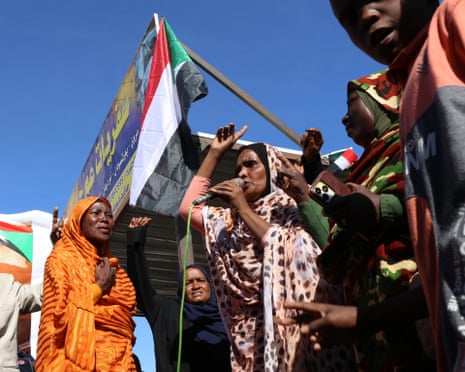
A drone strike has hit a United Nations peacekeeping logistics base in war-torn Sudan, killing six peacekeepers, the UN secretary general António Guterres has said.
Eight other peacekeepers were wounded in the strike on Saturday in the city of Kadugli in the central region of Kordofan. All the victims are Bangladeshi nationals, serving in the UN interim security force for Abyei (Unisfa).
“Attacks targeting United Nations peacekeepers may constitute war crimes under international law,” said Guterres, who called for those responsible for the “unjustifiable” attack to be held accountable.
The Sudanese military blamed the attack on the Rapid Support Forces (RSF), a notorious paramilitary group that has been at war with the army for control of the country for more than two years. There was no immediate comment from the RSF.
The attack “clearly reveals the subversive approach of the rebel militia and those behind it”, the military said. It posted a video on social media showing plumes of dense black smoke over what it said was the UN facility.
The oil-rich Abyei is a disputed region between Sudan and South Sudan, and the UN mission has been deployed there since 2011, when South Sudan gained its independence from Sudan.
Guterres also called for an immediate ceasefire in Sudan to allow “a comprehensive, inclusive and Sudanese-owned political process” to settle the conflict in the north-east African country.
Sudan was plunged into chaos in April 2023 when a power struggle between the military and the RSF exploded into open fighting in the capital, Khartoum, and elsewhere in the country. The conflict has killed more than 40,000 people – a figure rights groups consider a significant undercount.
The fighting has recently centred on Kordofan, particularly since the RSF took control of El Fasher, the military’s last stronghold in the western region of Darfur.
The war has wrecked urban areas and has been marked by atrocities, including mass rape and ethnically motivated killings which the UN and rights groups have said amount to war crimes and crimes against humanity, especially in Darfur.
The war has also created the world’s worst humanitarian crisis and pushed parts of the country into famine.
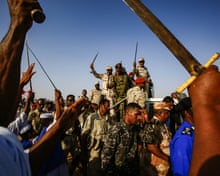
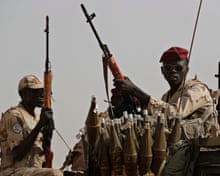
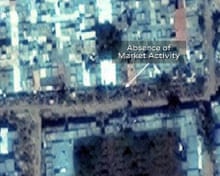
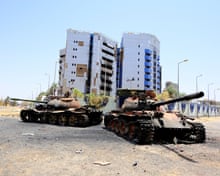
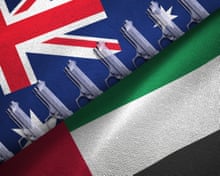

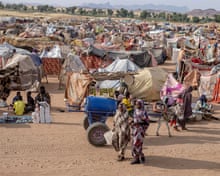
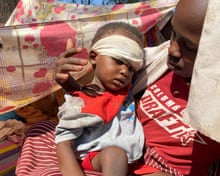


优人, 在中国古文献中叫巫觋, 也就是男女巫师; 职能包括主持祭祀、占卜、驱鬼治病等,通过神灵附体或“灵魂出走”等方式实现人神沟通,施法时常借助自然媒介或特定仪式进入迷狂状态。 后来的优伶,就是戏剧表演者。巫觋向优伶身份的转变与下移 ,是神性的蜕变。优人神鼓将优人与神鼓结合起来名称, 就能看到出他们对巫觋的重视;这与演出地,以人类学和民俗学研究和展出为专长的法国布朗利河岸雅克希拉克博物馆一拍即合,高度契合。
« 入夜山岚 » 一个多小时的演出,大大小小的鼓声在一个长线条的连贯的气息里一会儿起承,一会儿转合; 各种音色的锣, 不仅在节奏上推波助澜,更在音阶上扣人心弦。 男女乐手们也是舞者,他们在有裙摆的类似唐朝舞姬陶俑的礼服里,配合声音的分分合合,形成集体的肢体视觉图案。·
整场演出,时而让观众在超凡脱俗的撩拨里享受,时而象心理诊所的催眠术让人半梦半醒。
优人神鼓创始人刘若瑀和艺术总监黄志群将各种本来在汉语地区具有一定功能性的,在功能框架里识别比较方便的声音和形体进行抽象化处理,把这些声音和形体从原有的、可能的功能中抽离出来,让它们与原始的耳熟能详分开,在中西合璧的现代融合里,为起起伏伏的情绪感染服务。
“优人神鼓”在巴黎的表演究竟有多少巫觋的成分, 表演者和观众之间的共鸣有多少模拟升天的气场? 这个周末的四场 « 入夜山岚 » 演出将给巴黎的观众提供线索。

法新社报道, 德国政府表示,柏林将于下周一接待包括欧盟和北约领导人在内的各方领导人,会晤时间安排在泽连斯基与德国总理默茨共同出席德乌商业论坛之后。
法国周五表示,欧洲人和乌克兰人要求美国在乌克兰就任何领土让步进行谈判之前,向乌克兰提供“安全保障”。
泽连斯基周四表示,华盛顿只希望乌克兰而非俄罗斯从顿涅茨克东部部分地区撤军,并计划在那里立一个非军事化的“自由经济区”,作为两国军队之间的缓冲区。
周五晚间,法国总统马克龙的一位顾问表示,乌克兰“不考虑”就这些领土或非军事区达成协议。
星期六泽连斯基警告说,俄罗斯“仍然想要摧毁”乌克兰。与此同时,基辅方面表示,俄罗斯连夜对乌克兰能源设施发动“大规模”袭击,导致乌克兰全国几千户家庭断电。
乌克兰东北部苏梅州州长称,一枚俄罗斯炮弹击中该地区一栋居民楼,造成一名80岁的老妇死亡。
俄罗斯方面表示,已使用高超音速弹道导弹袭击了乌克兰设施,并说这是对乌克兰袭击的报复
乌克兰总统泽连斯基在接受X采访时表示:“现在每个人都应该看清俄罗斯的所作所为——他们针对我们人民采取的每一次恐怖行动……这明显的不是为了结束战争。他们仍然妄图摧毁我们的国家,给我们的人民带来最大的痛苦” 。
自从上个月公布结束战争的计划以来,特朗普一直在加大对基辅的压力,以促成协议。该计划被批评为呼应了莫斯科的要求,其中包括乌克兰割让关键领土。

法新社报道,阿努廷周六告诉记者,两位领导人“没有讨论”这个问题。
而特朗普周五说他与泰国总理阿努廷和柬埔寨首相洪玛奈的会谈“非常好”。
特朗普在他的“真相社交”平台上写道:“他们已同意从今晚起停止一切枪击,并恢复到7月份达成的最初和平协议。”
因为边境冲突,本周至少有25人死亡,泰国国防部称周六在边境地区丧生的四名泰国士兵也包括在里面。
曼谷和金边互相指责对方袭击平民,泰国军方报告称,周六有六人被柬埔寨火箭弹击伤。 与此同时,柬埔寨新闻部长奈特·帕克特拉表示,泰国军队“扩大了袭击范围,将民用基础设施和柬埔寨平民也纳入其中”。 泰国海军发言人称,空军“成功摧毁”了两座用于向冲突地区运送武器的柬埔寨桥梁。
最新伤亡事件发生后,金边宣布将立即“暂停所有柬埔寨-泰国边境口岸的出入境活动”。
泰国和柬埔寨之间发生暴力冲突是因为双方长期以来对殖民时代划定的800公里边界的争议,他们的冲突目前已导致双方约50万人流离失所,无家可归。

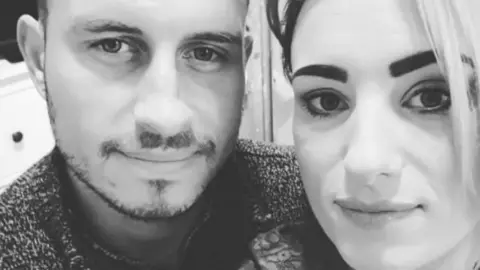 Katie Yates
Katie YatesHandsome, charming, a "gentle giant" - Katie Yates believed Jason Smith was a real catch after meeting him on a dating app.
But within months he had subjected her to relentless physical and mental abuse before raping her and attempting to drown her in the bath just before Christmas.
Katie, 42 and from Cardiff, has waived her anonymity as a victim of sexual assault to warn women to be wary of strangers they meet on dating apps who may pose as nice guys in an attempt to lure them in.
"You scroll on all the profiles with smiling photos and slick words but there are some people who should be looking for a therapist, not a girlfriend," she said.
Warning: This story contains distressing content and discussion of domestic abuse

 Wales News Service
Wales News ServiceKatie had been single for five years when she signed up to a dating app in February 2018.
At the time she was 35, a single mum of two, and had endured a painful divorce.
Smith, then 29 and a railway maintenance worker, messaged her and things seemed to be going well at first.
"He seemed so warm and friendly - like a gentle giant," Katie said.
"He told me he had a child and loved being a dad. It was a bonus he was handsome, too.
"He complimented me and he asked me lots of questions, like he really wanted to know everything about me."
Warning: Distressing image
Katie, who was a trainee hairdresser at the time, agreed to meet Smith when he asked her to meet him in a local Wetherspoons in his hometown of Pontypridd, Rhondda Cynon Taf.
She said: "He greeted me with a big smile and he had the brightest blue eyes. He was incredibly charming with an infectious demeanour.
"We'd talk for hours about everything. I even introduced him to my children.
"I felt so lucky, I believed Jason was a real catch. I honestly wondered why he hadn't been snapped up already."

 Katie Yates
Katie YatesKatie said Jason turned up at her house weeks into their relationship asked to move in with her temporarily because he'd fallen out with his landlord.
She said she "wasn't ready for things to progress that quickly" but he was "very persuasive and sounded so desperate", so she let him stay.
His behaviour soon changed.
"Jason began accusing me of fancying everyone in sight," she said.
"One day he strangled me until I passed out after accusing me of fancying some random stranger. It was all pure fantasy in his head."
Katie said the abuse and jealousy continued but she struggled to end the relationship.
Smith sometimes called Katie "70 times and demanded" she video-called him so he could see where she was.
On one occasion he told her his ex-girlfriend was "much more beautiful" and another time, Katie found he'd stolen money out of her child's birthday cards.
"I got so used to wearing sunglasses, too, to hide my black eyes," she said.
"I remember one day looking in the mirror and I barely recognised myself. I'd become so thin and fragile with the stress. I even had to give up my hairdressing course because I couldn't concentrate on anything."
In the week before Christmas in 2018, Smith lost his temper and ripped Katie's clothes and the children's toy elves.
When they returned home from a holiday, he raped her, then four days later he held Katie's head under the water in the bath because he thought she had been flirting with staff at a supermarket.
"He was so strong, my legs splashed frantically in the water. I thought he was going to drown me and I was going to die that moment," she said.
"Finally, he released me as I spluttered and coughed, frantic for breath before he dunked my head under again.
"After he'd finished, I just sat in the bath, shaking and trembling, too terrified to even move."
The following day, Jason beat Katie so badly she contacted her parents in fear of her life.
"My dad didn't recognise me when he saw me. I looked like something out a Halloween movie. When my mum saw me, she broke down and was white with shock," she said.

 Wales News Service
Wales News ServiceKatie reported Smith to the police, leading to the end of a 10-month campaign of abuse.
Despite him denying the charges during a trial at Newport Crown Court in 2019, a jury found Smith guilty of rape, assault occasioning actual bodily harm and assault by beating and he was jailed for 15 years. He was also given a restraining order for 10 years.
Katie said she still suffers "terrible flashbacks and nightmares", adding she is terrified Smith will try to find her when he leaves prison when he is eligible for parole in 2027.
"I believe he will come looking for me and that really frightens me but I don't regret speaking out - he was a danger to women.
"I thought I'd struck lucky when I met Jason, but I'd invited a monster into my life.
"For 10 months, my life was a living hell. It's made me think twice about ever going on a dating app ever again.
"I am lucky to be alive. It's taken a long time to rebuild my life."
If you are affected by any of the issues raised in this story, support and advice is available via the BBC Action Line.
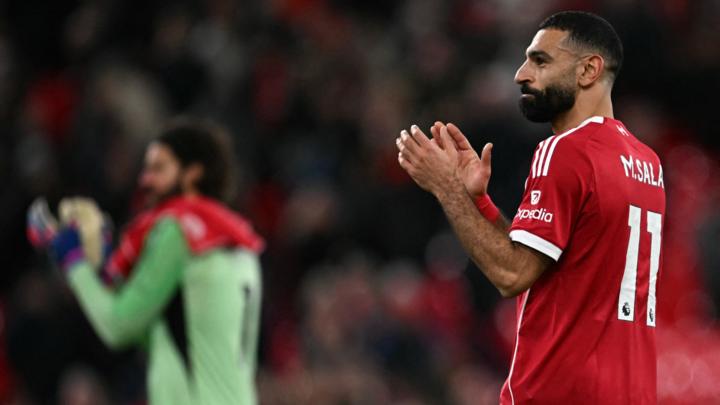
Mohamed Salah will now join up with Egypt for the Africa Cup of Nations tournament
Mohamed Salah took everything in at full-time of Liverpool's 2-0 Premier League win over Brighton, applauding all four sides of Anfield while home fans serenaded their 'Egyptian king' with his familiar song.
By the time he reached the tunnel he was the last player on the pitch, giving a little wave towards the main stand, where his family were sat.
A goodbye perhaps? Only for now, it seems.
Salah will join Egypt in Cairo over the coming days as they prepare for the Africa Cup of Nations - but the message after manager Arne Slot's post-match news conference was clear.
A line has been drawn when it comes to team selection.
"There is no issue for me to resolve," said Slot. "For me, he is now the same as any other player. There is nothing for me to talk about after what happened against Leeds."
In his outburst at Elland Road last Saturday - where he claimed to have been "thrown under the bus" by the club and had no relationship with his Dutch boss - Salah said this game against Brighton could well be his farewell.
Having been left out of the squad for the midweek Champions League win at Inter Milan, he came off the bench against the Seagulls as a 26th-minute replacement for the injured Joe Gomez.
And the expectation now is very much that the 33-year-old will return to Liverpool next month after international duty.
Talks are still planned between both parties while Salah is away but, a week on from his emotional interview at Leeds, he was all smiles in the mixed zone at Anfield as he walked past the media and was asked for a chat.
"Two weeks in a row? No, no," joked Salah.
'Easy decision' to recall Salah says Slot
277 and out? Liverpool's Salah turns record breaker again
There was no effort on Salah's part to speak again or publicly apologise, but Slot gave a clear "yes" when asked if he wanted the frontman back after the Africa Cup of Nations. The understanding is their meeting on Friday was positive.
Asked if Salah wanted to stay, the Reds boss added: "That I think you already know the answer. What has been said between us stays between us. He was in the squad and my first substitution."
For the fifth game in a row, Salah wasn't in the starting line-up. But, when defender Gomez was injured, Slot turned to the bench and put on the man who has scored 250 goals for Liverpool in his eight years with the club.
There were no boos. Just applause and appreciation.
Salah didn't add to that goal tally, but did get the assist for Hugo Ekitike's second on the hour mark.
That took him to 277 goal involvements in 302 Premier League appearances for Liverpool - the most by any player for a single club in the competition, overtaking Wayne Rooney (276) at Manchester United.
A remarkable statistic in itself and a measure of how much he has done for the Reds.
Back in the squad and involved in much of Liverpool's positive attacking play, former Wales defender Ashley Williams described his performance against Brighton as "like the old Salah".
"Salah has done extremely well," ex-Liverpool defender Stephen Warnock added on Final Score. "He has had a couple of opportunities where he should and could have done better. This week will have given his confidence a knock, he will been apprehensive coming into the game. He needs to build up his confidence."
This video can not be played
There is no issue to resolve - Slot on Salah's return
Speaking after the game, Ekitike described sharing a pitch with Salah as "a blessing", adding he was "the kind of player who makes us like to watch football".
But the French forward and Co won't now share a pitch with their team-mate until January at the earliest, with Salah potentially missing eight games if Egypt go all the way to the final in Morocco on 18 January.
"I suppose everybody will be leaving Anfield with that feeling of what's going to happen next with Mo Salah," ex-Blackburn Rovers striker Chris Sutton said on Final Score. "Is he going to stay or is he going to go? But it's been a good week for Slot.
"I don't think it was a goodbye. There were a couple of moments where we you thought, 'was that a wave or not', but it just looked like he was applauding the fans like he does every week, and as a lot of the other players did.
"It's going to be interesting to see how this situation pans out. If you're a Liverpool fan you want to keep your best players so you'll be hoping it works out."
A major plus for Liverpool is that, without Salah starting in any of the past five games, they are still unbeaten and have shown they can cope without the Egyptian talisman.
That in itself will give Slot confidence. But, in the long-term, having a fit and firing Salah can only be a positive for his side.
"I spoke to him yesterday and as I usually never say anything about what we talk about, I am not going to make an exception now," added Slot.
"But I think actions speak louder than what has been said and he was in the squad again and when I had to make my first substitutions, I brought him in and he performed as every fan including me would like him to."
It is clear Slot is happy to pick Salah again, but also clear there is still no definitive conclusion after a tumultuous week for both parties - and Liverpool.

非洲国家刚果民主共和国(RD Congo)东部地区的局势被列入了联合国安理会2025年12月12日星期五的讨论话题。在刚果(金)的南基伍省(Sud-Kivu),继乌维拉(Uvira)被反叛政治军事团体[刚果河联盟/03月23日运动](AFC/M23)夺取之后,一百公里外的巴拉卡(Baraka)如今受到威胁,情势危机。与此同时,本台法广(RFI)非洲通讯员自刚果(金)首都金沙萨(Kinshasa)发回消息说,该国政府高官表示,解放南基伍省的战役尚未结束。
据本台法广非洲组(RFI Afrique)今天(2025年12月13日)周六的法文报道。在刚果(金)东部地区的南基伍省(Sud-Kivu),巴拉卡(Baraka)现在成为了第三个受到[刚果河联盟/03月23日运动](AFC/M23)威胁的城市。
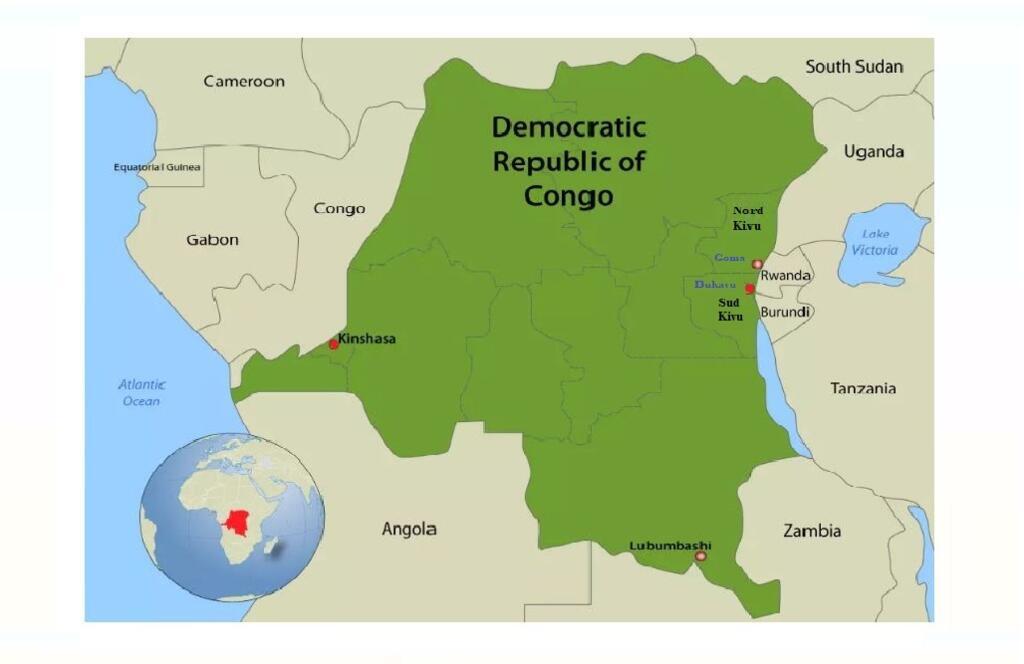
稍早前,得到邻国卢旺达支持的刚果(金)东部反叛政治军事团体刚刚占领了乌维拉(Uvira)。在首都金沙萨(Kinshasa),一名部长级高官向外交使节们表示,刚果(金)武装力量在盟军的支持下,正在重组和重新部署,以捍卫国家领土完整。这名部长表示,解放南基伍省的战役尚未结束。
-- 刚果(金)东部地面局势依旧紧张 --
据本台法广(RFI)非洲通讯员宝琳娜(Paulina)发自金沙萨(Kinshasa)的消息:在刚果民主共和国乌维拉(Uvira)以南约100公里、一直延伸至巴拉卡(Baraka)的这片区域里,地面局势依旧高度紧张。
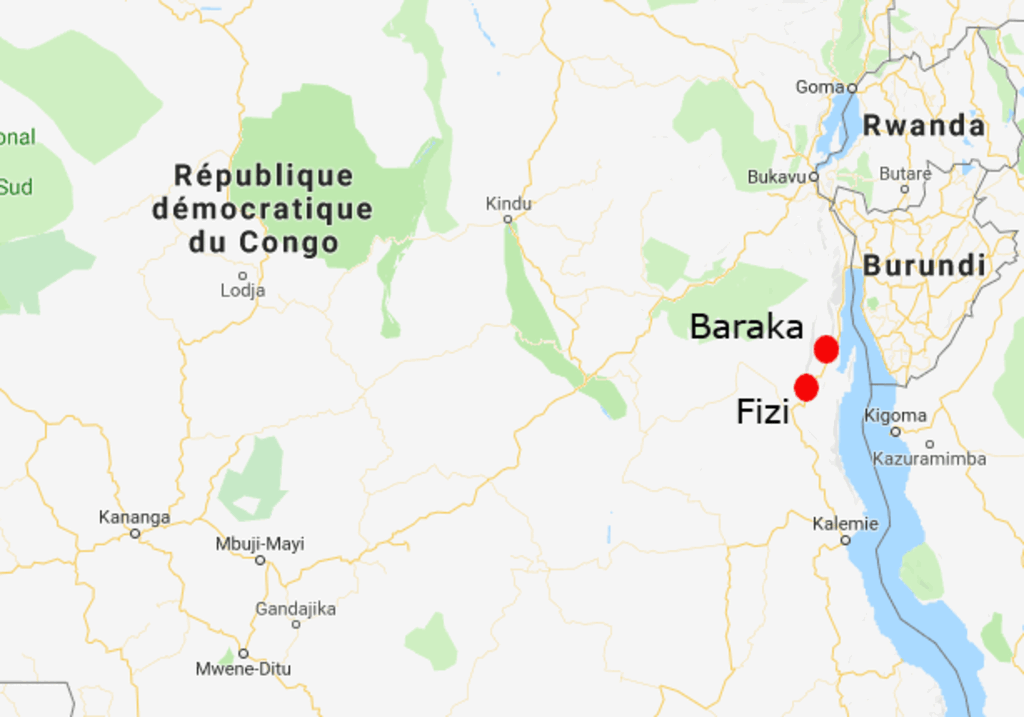
据安全领域消息渠道周五透露,巴拉卡(Baraka)城内听到疑似出自刚果民主共和国武装力量(FARDC)的枪声,但具体情况不明。另有报道称,Mboko附近也发生了摩擦。冲突双方是Wazalendo自卫民兵和目前仍暂驻在乌维拉(Uvira)附近的[刚果河联盟/03月23日运动](AFC/M23)武装人员。
-- 国际人道救援组织暂停医疗活动 --
同一报道说,面对安全局势的恶化,无国界医生组织或[医生无疆界]组织(MSF-Médecins sans frontières)宣布提前暂停在这一地区的医疗活动。这一非政府组织(ONG)于08月份发起了一项针对疟疾(le paludisme)的紧急行动,原定计划预计持续到明年一月底。如今,所有团队都已撤离。但[医生无疆界]组织(MSF)发出警告说,当地正值雨季,卫生状况令人担忧。[医生无疆界]组织(MSF)南基伍省事务负责人在一份声明中告知:当前正处于疟疾流行的高峰期,令人感到担忧的是,我们不能为民众提供所需的援助。
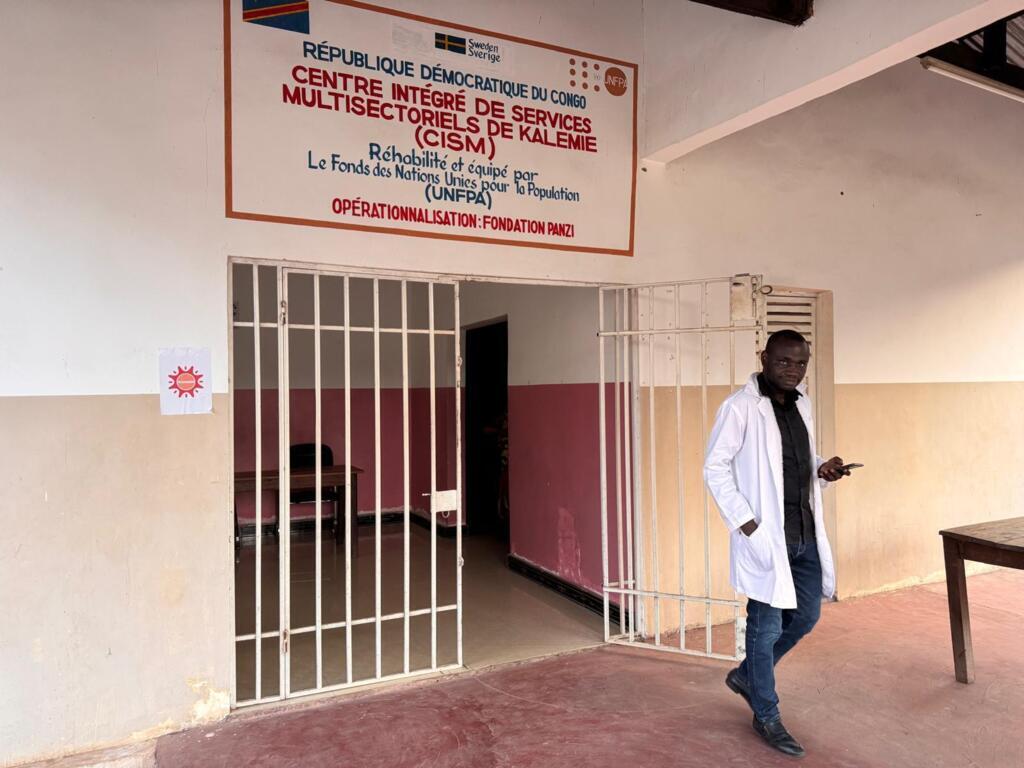
-- 动荡局势再次导致民众流离失所 --
本台法广非洲组(RFI Afrique)的这篇法文报道最后指出,刚果(金)东部的安全不稳定性再次导致人口的迁徙。南基伍(Sud-Kivu)的居民们已经跨省,进入邻近的坦噶尼喀省(Tanganyika)。在卡莱米(Kalemie),一位在这里已经逗留数月之久、原籍布卡武(Bukavu)的流民证实,又有一批新的流离失所者涌入。
( 翻译和编辑:法广 RFI 电台 尼古拉 )
~. Fin.~

© Eden Ambaye

 BBC
BBCTwo US soldiers and a US civilian interpreter have been been killed in Syria in an ambush by a lone Islamic State gunman, the US military has said.
The Pentagon said three other service members were injured in the attack, during which the gunman was "engaged and killed".
The identities of those killed are being withheld for 24 hours until their next of kin have been informed.
Defence Secretary Pete Hegseth, said: "Let it be known, if you target Americans - anywhere in the world you will spend the rest of your brief, anxious life knowing the United States will hunt you, find you, and ruthlessly kill you."
This breaking news story is being updated and more details will be published shortly. Please refresh the page for the fullest version.
You can receive Breaking News on a smartphone or tablet via the BBC News App. You can also follow @BBCBreaking on X to get the latest alerts.

在南非(Afrique du Sud),由纳尔逊·曼德拉(Nelson Mandela)创立的[非国大](ANC)于本周五在约翰内斯堡(Johannesburg)结束为期五天的全国理事大会(2025年12月08日星期一至2025年12月12日星期五)。据本台法广(RFI)非洲通讯员发自当地的法文报道,这个全称为[非洲人国民大会](Congrès National Africain)的南非历史性政党承认有财务问题。
据本台法广非洲组(RFI Afrique)的法文报道,南非[非国大](ANC)刚刚闭幕的这届全国理事大会是一次例会,让其得以评估自身状况。除了由于支持率下跌的制约之外,该党于2024年06月开始了三十年以来的首次联合执政。尤其是该党反复出现的财务问题令人感到不安。

-- [非国大]代表们聚会之际出现雇员讨薪的示威 --
本台法广(RFI)非洲通讯员克莱尔(Claire)2025年12月12日周五发自约翰内斯堡(Johannesburg)的消息说,在南非,这场聚会于本周早些时候开幕时,出现了[非国大](ANC)雇员由于数周未能领到工资而举行的示威游行。对此,[非国大]总书记菲基莱·姆巴卢拉(Fikile Mbalula)做出承诺,当前状况将“很快得到解决”。他同时承认,存在结构性的财务问题。
![存档图片 / 非洲 - 南非:[非国大]总书记菲基莱·姆巴卢拉(Fikile Mbalula)
Image d'archive / Afrique du Sud : Fikile Mbalula, avant d'être élu secrétaire général de l'ANC en mars 2023, il était ministre. Ici, Fikile Mbalula, ministre sud-africain des Sports, le 28 mai 2015 à Johannesburg. (illustration)](https://s.rfi.fr/media/display/61124aca-14b8-11ea-b27b-005056a99247/w:1024/af%20sud_0.JPG)
同一法文报道指出,南非的这个政党长期“入不敷出”,其财务报告尚未对外公开。不过,有些数据已经公布:[非国大](ANC)的每月工资开销超过一百万欧元。有一家企业也曾向法庭公开过其被欠债的具体细节。
-- 南非规定捐款人超过一定金额必须公开身份 --
本台的这篇法文报道还注意到,一名政治分析家认为,这些问题主要源于该党的历史运作方式:长期以来,这个政党入不敷出。但从今往后,法律框架更加严格,因此不能再运用各种非法渠道。另一方面,[非国大](ANC)质疑南非的一项法律,规定金额超过10万兰特(rand)的捐款人必须公开身份。10万兰特(rand)相当于5000欧元。
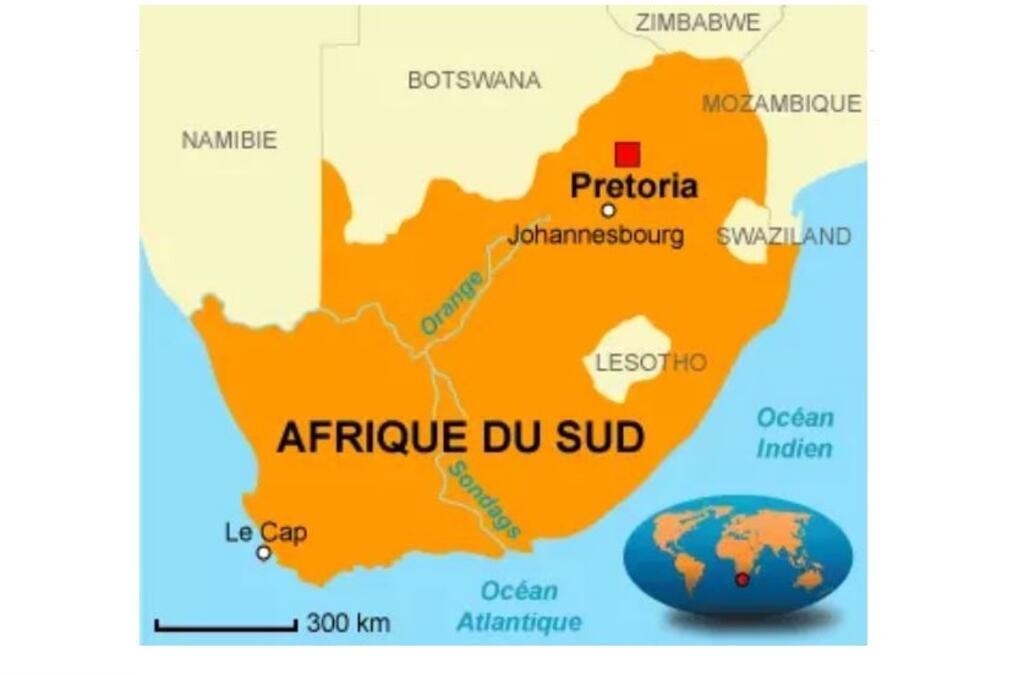
( 翻译和编辑:法广 RFI 电台 尼古拉 )
~. Fin.~

© Courtesy of Houman David Hemmati

美国总统特朗普(Donald Trump)于周六警告,针对在叙利亚中部造成两名美军士兵及一名美国平民翻译死亡的伏击事件,将展开“非常严厉的报复”。美方初步认定,该起攻击由一名伊斯兰国(ISIS)武装分子单独发动,已由美国及伙伴部队将其击毙。
特朗普周六中午在白宫外向媒体表示,美国会对伊斯兰国进行报复,并称罹难者为“三位伟大的爱国者”。
美国国防部长赫格塞斯(Pete Hegseth)表示,发动袭击的“野蛮凶手已被伙伴部队击毙”。他并在X上发文强硬警告:“让所有人知道,如果你在世界任何地方锁定美国人为目标,你短暂而焦虑的余生,将会在美国追捕、找到并毫不留情地杀死你的阴影下度过。”
美国陆军部长德里斯科尔(Daniel Driscoll)也在X上发文表示:“我为殉职的勇敢美军士兵与平民、受伤者,以及承受巨大悲痛的家属祈祷。为国服务的男女代表了国家最优秀的一面,我们哀悼这些英雄,并向他们的奉献与牺牲致敬。”
五角大厦指出,目前事件仍在调查中。一名国防部官员透露,攻击地点并非由叙利亚总统沙拉政府实际控制。五角大厦发言人帕内尔(Sean Parnell)稍早指出,事件发生于叙利亚中部历史名城帕尔米拉,当时美军士兵与一名美国平民翻译正执行任务,遭遇伏击,除三人不幸罹难外,另有三名美军受伤。美国中央司令部表示,伤亡“是由叙利亚境内一名伊斯兰国枪手伏击所致”。
帕内尔在社群平台X上说明,遇袭时美军正在进行“一项关键领导人接触行动”,其任务是支援当地持续进行的反伊斯兰国、反恐行动。基于国防部政策,阵亡士兵姓名及所属单位资讯,将在通知家属满24小时后才会公布。
这次攻击前一个月,叙利亚才刚宣布加入了打击“伊斯兰国”的国际联盟,与美国主导的反伊斯兰国联盟签署政治合作协议,当时叙利亚总统沙拉(Ahmed al-Sharaa)还来白宫作客。
美国驻土耳其大使暨叙利亚特使巴拉克(Tom Barrack)发表声明谴责袭击,表示“哀悼三名勇敢的美国军人与平民,并祝愿受伤的叙利亚士兵早日康复”,同时强调美国仍将与叙利亚伙伴携手打击恐怖主义。
美联社引述叙利亚国家媒体报道,周六袭击事件中的伤者,被直升机送往靠近伊拉克和约旦边境的坦夫驻军。英国设立的叙利亚人权观察组织称,攻击者可能与叙利亚安全部队有关 ,但叙利亚内政部发言人巴巴(Nour al-Din al-Baba)否认该说法,并表示当局仍在厘清凶手是否为伊斯兰国成员,或仅认同其极端思想。
目前伊斯兰国尚未宣称对这次的攻击负责。
目前约有900名美军驻扎叙利亚,作为打击伊斯兰国联盟的一部分。尽管伊斯兰国于2019年在战场上被击败,但联合国评估指出,该组织在叙利亚与伊拉克仍保有约5,000至7,000名武装分子,并持续以潜伏形式发动攻击。
#沙拉领导的沙姆解放组织(HTS)去年推翻长期执政的阿塞德,并与西方国家改善关系,本次事件亦成为阿萨德政权倒台一周年以来,首度造成美军人员死亡的攻击事件,为叙利亚局势再添不稳定因素。

据德国N-TV电视台报道:在周一柏林乌克兰峰会举行前夕,德国总理默茨呼吁欧洲团结一致。他表示:“如果乌克兰倒下,普京不会就此停手”
基民盟籍总理默茨于周六在慕尼黑举行的姊妹党基社盟(CSU)党代会上发表讲话表示,正如1938年那样,对侵略行为的让步并不能带来和平。俄罗斯如果在乌克兰取得胜利,只会鼓励普京,而不会阻止他。默茨呼吁欧洲保持团结,共同扶持乌克兰。他赞成将冻结的俄罗斯财产用于乌克兰的重建。
美国总统特朗普近日对继续与欧洲及乌克兰就和平方案进行磋商流露出不耐烦情绪。但据一名内部人士透露,美国特使威特科夫(Witkoff)和库什纳(Kushner)仍将前往柏林,与泽连斯基和默茨会面。
据一位熟悉情况的美国政府人士介绍,美国将派遣其乌克兰事务特使史蒂夫·威特科夫,以及美国总统特朗普的女婿贾里德·库什纳,前往柏林参加乌克兰和平谈判。两位美方特使将于周一与乌克兰总统弗拉基米尔·泽连斯基、德国总理弗里德里希·默茨、法国总统埃马纽埃尔·马克龙以及英国首相基尔·斯塔默会晤。
德国联邦政府此前通报称,当晚欧盟和北约的领导层也将加入会谈。此外,周日和周一还计划安排威特科夫分别与来自法国、英国和德国的对口官员举行单独会谈。美国总统特朗普此前曾表示,只有在他认为谈判具有前景且已取得实质性进展的情况下,才会派遣正式代表参加相关会议。
这名内部人士指出,派遣威特科夫凸显了华盛顿方面日益增强的紧迫感,即希望弥合与基辅在美国所提出和平方案条件上的剩余分歧。柏林磋商的目标,是就与俄罗斯达成和平协议形成共同立场。法国总统府的一名代表表示,希望为俄罗斯提出一项可供谈判的方案。
据乌克兰首席谈判代表鲁斯捷姆·乌梅罗夫(Rustem Umerov)介绍,此次会谈旨在进一步协调各方立场。此外,与会各方还将讨论,如何将一种类似北约集体防卫义务的安全保障机制纳入和平方案,作为对乌克兰的安全保障。
德国联邦政府已确认,联邦总理弗里德里希·默茨将于周一接待乌克兰总统泽连斯基。除围绕和平谈判的讨论外,两国领导人还将参加德乌经济会谈。媒体报道称,另计划在所谓的“E3”框架下举行会谈,参与国家包括德国、英国和法国。
《奥格斯堡汇报》表示:对乌克兰而言,继续获得援助关乎生死存亡。但是否将冻结的俄罗斯财产用于乌克兰的重建,美国犹豫不决,欧盟内部也争论不休。最终决定可能将在柏林峰会上做出。所以,人们特别担心峰会将失败

 BBC
BBCTwo US soldiers and a US civilian interpreter have been been killed in Syria in an ambush by a lone Islamic State gunman, the US military has said.
The Pentagon said three other service members were injured in the attack, during which the gunman was "engaged and killed".
The identities of those killed are being withheld for 24 hours until their next of kin have been informed.
Defence Secretary Pete Hegseth, said: "Let it be known, if you target Americans - anywhere in the world you will spend the rest of your brief, anxious life knowing the United States will hunt you, find you, and ruthlessly kill you."
This breaking news story is being updated and more details will be published shortly. Please refresh the page for the fullest version.
You can receive Breaking News on a smartphone or tablet via the BBC News App. You can also follow @BBCBreaking on X to get the latest alerts.
Everyone should "follow the rules" when guidance on single-sex spaces is released, the new head of the equality watchdog has told the BBC.
Dr Mary-Ann Stephenson, chair of the Equality and Human Rights Commission (EHRC), said "things could be sorted out if there is goodwill and recognition that everybody has rights", and that "nobody is expecting there to be a toilet police".
The guidance, for businesses and services, was drawn up after a unanimous Supreme Court ruling in April that legally a woman should be defined by biological sex for the purposes of the Equality Act 2010.
The BBC interview, to be broadcast on Sunday with Laura Kuenssberg, is Dr Stephenson's first in her new role.
The EHRC's guidance was passed to the government three months ago, but it has yet to publish it formally, which would give the code of practice legal force.
It aims to provide advice to businesses and services - such as women's refuges, gyms, hospitals or shopping centres - about how the Supreme Court ruling should work.
Seen by the BBC after it was leaked, the 300-page document says single-sex spaces should only be open to people of the same biological sex, otherwise they cease to be single-sex areas.
That would mean, for instance, that a trans woman – a biological male who identifies as a woman - would not be able to use women's toilets and changing rooms.
The guidance says it may be legitimate for businesses or services to ask people to provide confirmation they are of the eligible sex "by proportionate means".
This has all caused controversy and anger among some transgender campaigners.
Dr Stephenson told the BBC: "Nobody is expecting there to be a toilet police.
"But equally if there are situations where there are complaints about regular problems, then people might need to... improve signage, improve explanations, or make sure they have got alternative provision."
She said she expected both service providers and people using these services to "follow the rules".
Dr Stephenson was challenged on what facilities trans people should use if there were no alternatives, or what businesses should do if they did not have the space or resources to make extra provision.
She said: "There's often unisex provision and where there isn't, as I say, we need to think more broadly about how we make sure those that those facilities are available…
"If you've got, you know, two self-contained cubicles, one of which is labelled men and one of which is labelled women, then the most sensible thing in those circumstances for a service provider to do is to make both of those unisex."
Dr Stephenson was appointed to the role in July and she started earlier this month.
It was greeted with hostility by some trans campaigners, in part because she had donated money to the case of lawyer Allison Bailey, who won part of a tribunal claim that she was discriminated against because of her gender-critical views.
In our interview, Dr Stephenson was adamant she could still be objective when considering trans issues.
She said she donated to the case because she was frustrated by situations where "women were being harassed and losing their jobs on the basis of lawfully held beliefs".
She said she had been concerned by the experiences of some women "when trying to have meetings to discuss proposed changes in the law".
"I thought it was important that actually in a democracy, if there is a proposed change to the law, people should be able to meet and discuss those changes without violence or intimidation," she said.
"If that's taking a side, it's taking a side on the side of kind of democratic norms and open discussion and dialogue."
The full interview will be on Sunday with Laura Kuenssberg.

作者:李老白 | 公众号:老白读书
今天看到一组数据,让我对我们的人口现状有了更深刻的认知。
联合国人口司对今年的世界新增人口作出了预测,其结果为——
2025年,中国新生人口数量预计是871万多,占全世界新生人口比例,已跌破7%!
而这个数字在去年还是接近7.4%。
谨慎起见,我要说明一下,这不是我们的官方数据,我们的数据还没公布,这是联合国的预测。
至于这个数字有多准,见仁见智吧。
说回数字。
我国新出生人口占世界总出生人口的比例,最高的时候是达到近27%的,超1/4。
时间点是在建国初期。
随着时间的发展,这个比例逐年走低,直到去年的近7.4%,以及今年的不到7%。
按照预测,这个比值在未来将会更低。
所有这一切都在表明,中国的年轻人都不生孩子了。
为什么?
关于中国的年轻人为什么不生孩子这个课题,研究的人很多,给的答案也很多。
一般情况下,这种复杂问题是没有简单解的。
它一般都是由众多相互关联,或者没啥关系的独立问题所一同造成的后果。
这些独立问题不外乎:
1、经济发展是天然的避孕药。这是有统计数据支撑的。
2、经济下行造就低欲望社会,造成年轻人不想谈恋爱也不结婚。
3、高房价、低收入使年轻人对组建家庭、生孩子失去信心。
4、养孩子太贵了。
5、如今的孩子是消费品,已不具备防老功能,现在养老靠社会。
还有没有?
欢迎大家补充。
这一节我们聊聊如今的年轻人不愿意结婚的话题。
《上野千鹤子的私房谈话III:不那么努力也可以》这本书里,作者曾披露了日本的一组数据:
2000年左右,日本的终身婚率是女性5%,男性9%,都是绝对的少数派。
到2015年再次统计时,日本终生未婚率女性达到了14%,男性达到了23%,增长之势已相当迅猛。
但它仍未达到顶点!
据预测,20年后日本的终生未婚率会达到女性每四个人中有一个,男性每三个人中有一个。
即作者认为,2040年左右,日本将有1/3的男性、1/4的女性终身不婚。
中国的情况如何?
老实说,更惨。
2013年时大多还在10%左右,但到十年后的2022年就只剩下5%左右了,接近腰斩。
并且这个是受经济情况影响的。
经济越发达的地区,年度结婚率越低。如上海市2022年结婚率仅为2.9%,远低于平均值!


上面这还是三年前的数据。
据我观察,这几年婚恋市场的情况可以用水深火热来形容。
昨天还看到一篇文章里写,武汉某相亲角里的男女比例是1:9,大量女生(或她们的父母)寄希望于那10%的优质男生。
而更多男生,其实根本不会去那种地方“自取其辱”。
上个月Tim事件,只不过是再次证明了这个判断而已。
甚至那个事件被上纲上线,大概还证明了某些群体在这个事件中破了防。
第二个问题我们要说的是,即使结婚了,年轻人也未必会生孩子。
因为他们太穷了,或者说养孩子太贵了。
在《低生育陷阱》中,作者是这么说的:
“因不喜欢孩子才不生孩子的人原本就是极少数,而对于‘想生但因条件尚不具备,所以不生孩子’的多数人来说,开展这类宣传活动也毫无意义。”
并不是现在的年轻人不喜欢孩子了,而是他们迫于种种原因“不能生”。
是什么原因呢?
调查结果如下:
1、“因为孩子的养育及教育太花钱了”这一项遥遥领先。
在30~34岁之间的这个生育主力人群中,因经济问题而放弃生育的比例超过80%!
养孩子太费钱,而年轻人又太穷了。
2、“因为会妨碍自己的工作”和“因为无法承受更多的育儿心理和身体负担”排二、三名。
在30~34岁之间的这个生育主力人群中,这两项占比分别是24%和23%,与第1条有断档式差别。
这两项对应的,我认为主要是现代女性需要工作与育儿两立的问题,这是个很重要的问题。
但经济问题是根本问题。

上面说的是日本,那我们的年轻人是更富,还是更穷?
如果你经常看日剧,会知道当初日本是可以一人上班养全家的,我们做到过吗?
我们这边更多的,恐怕是上班后还得父母时不时资助一下,免得吃土吧。
谁穷谁富,一目了然。
养孩子有多费钱?
《深圳市0-3岁婴幼儿家庭养育成本调研报告》显示,2021年深圳市0-3岁婴幼儿总养育成本平均约74612元/年。
而《中国生育成本报告》中也提到,0-17岁城镇孩子的养育成本平均为63万元;
0-17岁农村孩子的养育成本平均为30万元。
关于这个,我曾以2024年人均消费支出为基础,计算出一组数据:
2024年,我国生育一个孩子并将他培养到大学毕业,平均费用已经上涨至75万以上了。

这75.5万只是基础教育支出,在现今这么卷的情况下,很多家长都被给孩子报补习班。
而这又是一个“无底洞”。
当培养孩子的花费水涨船高,大多数人都无法承受时,会带来什么呢?
人们将不愿意生育孩子了。
可能是“少子化”,即便如今生育政策早已放开,很多人也只愿意生育一个了;
也可能是“无子化”,反正也无法指望通过孩子来养老了,不如不生,人生还不那么累。
这么费钱,养个猫它不香吗?
全文完,欢迎在留言区写下您的看法,谢谢阅读!
欢迎转载,请注明来源。


© Doug Mills/The New York Times

© Ints Kalnins/Reuters

 BBC
BBCTwo US soldiers and a US civilian interpreter have been been killed in Syria in an ambush by a lone Islamic State gunman, the US military has said.
The Pentagon said three other service members were injured in the attack, during which the gunman was "engaged and killed".
The identities of those killed are being withheld for 24 hours until their next of kin have been informed.
Defence Secretary Pete Hegseth, said: "Let it be known, if you target Americans - anywhere in the world you will spend the rest of your brief, anxious life knowing the United States will hunt you, find you, and ruthlessly kill you."
This breaking news story is being updated and more details will be published shortly. Please refresh the page for the fullest version.
You can receive Breaking News on a smartphone or tablet via the BBC News App. You can also follow @BBCBreaking on X to get the latest alerts.
作者:我是关尔东 | 公众号:关尔东
卢克文被封号了,准确的说,应该是“卢克文工作室”微信公众号被封,其它平台我懒得调查,只见头条号上,卢克文最近依然在发东西。温和如维舟老师,都用上了“喜大街奔”这样的词。
本次被封的原因跟卢克文的那篇《中国正在做好对日作战的准备》有关。之前,2021年的时候,卢克文因为在《塔利班传》中对拉登表示深深的共情被封,卢克文的共情让无数网友愤怒不已。作为同样一个写评论的,老实说,我不太理解卢克文到底想干嘛,是表达自己观点之锐利,还是不惧流言之勇气,都说不上来。
不过卢克文既然选择写这样的议题,就说明有对应的受众,他们很喜欢看他写这样的东西,一个巴掌拍不响。卢克文成为拥有千万级粉丝的大V,跟这些受众是脱离不开关系的。
近日,卢克文工作室头条号上对于近日的封号风波进行了回应,卢克文展现了很高的格局,谈到作为一个自媒体人,他更在意的是留下什么作品。对此我是同意的,以写字为生的人,混入了舆论圈,大家肯定还是以作品说话。
不知情者,还以为卢克文是写出了《史记》这样厚重的大经典。
问题是他写的是《塔利班传》这些,这样的作品能算得上是好作品吗,能青史留名?卢克文真的有好作品吗,谁来评判关于“好作品”的标准?
是卢克文的粉丝吗?恐怕以他们的趣味,绝大多数我认为已经写出了好作品的作者,他们都觉得是不合格的。
卢克文在封号期间,纠结的竟然是自己的历史定位,这点足够让我感到震惊。而我熟知的一些更为严肃的作者,他们反倒是经常反思:可能我们根本写不出走入经典的作品,这些自媒体文章,很有可能如镜花水月,昙花一现,速朽难长存。
我无意于去嘲讽卢克文的读者,只希望他们能够稍微把眼界拓的更宽一些,既然有能力去读卢克文写的那么长的文章,可见最基本的阅读能力还是有的,那么为什么不多去读更好的更专业的文章呢,止于卢克文是否太过可惜了呢?
不难想象,卢克文绝大多数的受众应该是生活在县城的人,他们有一定的文化,接受过最基本的九年义务教育,对于中专学历的卢克文,他们感到无比的亲切,觉得卢克文是在代表自己这个群体,是在为自己发声。他们对于那些喊口号式的更为粗劣的自媒体写手也感到不屑,因为那些人显得“太没文化”,虽然立场正确,但是没有卢克文那样“博学”,写篇文章都要做非常详实的田野调查,里面还有大量的数据。
在他们的眼中,卢克文相较于那些专家学者们是更“接地气”的,不仅如此,卢克文还是更“有才”的。他们通过卢克文的文章,了解了很多当代中国正在发生的事情,也了解了很多大国之间的关系。
“大国博弈就像打麻将”这样的语言,精准回应了他们对于这个世界的想象,打个麻将这有什么复杂的,只要盯准了卢克文,就不愁自己也可以变得“学富五车”,在朋友聚会的时候,可以轻描淡写地谈论自己对于大国博弈的感受。
卢克文俨然已经成为一个县城智库,成为一种谈资,一个窗口。
唯一的问题是,卢克文说的也不一定对。对于这点他们似乎并不在乎。

© Sean Sirota for The New York Times

 BBC
BBCTwo US soldiers and a US civilian interpreter have been been killed in Syria in an ambush by a lone Islamic State gunman, the US military has said.
The Pentagon said three other service members were injured in the attack, during which the gunman was "engaged and killed".
The identities of those killed are being withheld for 24 hours until their next of kin have been informed.
Defence Secretary Pete Hegseth, said: "Let it be known, if you target Americans - anywhere in the world you will spend the rest of your brief, anxious life knowing the United States will hunt you, find you, and ruthlessly kill you."
This breaking news story is being updated and more details will be published shortly. Please refresh the page for the fullest version.
You can receive Breaking News on a smartphone or tablet via the BBC News App. You can also follow @BBCBreaking on X to get the latest alerts.
King Charles has been praised for his candour in talking about his cancer treatment where he highlighted the importance of early detection and screening.
In a recorded video message, broadcast on Channel 4 for the Stand Up To Cancer campaign, the King said his treatment was being reduced and he urged people to take up offers of cancer screening, saying "early diagnosis quite simply saves lives."
The type of cancer he is being treated for has not been revealed and the King, 77, will continue to receive treatment and monitoring.
Clare Garnsey, associate medical director of Greater Manchester Cancer Alliance, said his message was "very powerful".
The King, who revealed his diagnosis in February last year, is not described as being in remission or "cured" but the regularity of his treatment will be significantly reduced in the new year.
In his video message, recorded in Clarence House two weeks ago, he said that he was "troubled" to learn that nine million people around the UK are not up to date with the cancer screening available to them.
"That is at least nine million opportunities for early diagnosis being missed," he said.
He added: "Too often, I am told, people avoid screening because they imagine it may be frightening, embarrassing or uncomfortable.
"If and when they do finally take up their invitation, they are glad they took part.
"A few moments of minor inconvenience are a small price to pay for the reassurance that comes for most people when they are either told either they don't need further tests or, for some, are given the chance to enable early detection, with the life-saving intervention that can follow."
Speaking to BBC Breakfast, Miss Garnsey said she, "like the majority of health professionals who work in the cancer field" was "really thankful" for what the King said.
"I think the message was very powerful about the importance of early diagnosis and how important it is that we all attend for our screening," she added.
She said it is "really helpful" to healthcare professionals when people in "positions of influence" - such as the King - speak publicly about their experiences with cancer.
These messages highlight that it "can happen to anybody", she said, and raise awareness of the potential symptoms someone may experience.
Royal biographer and friend of King Charles, Jonathan Dimbleby, said the King's message demonstrated the "unique role of the sovereign".
Speaking to BBC Radio 4's Today programme, he said the King's decision to speak openly about his treatment in such "warm, gentle, thoughtful, kind terms" was "quite extraordinary and it has great impact".
Mr Dimbleby said that when it was announced that the King was having treatment for an enlarged prostate in 2024, there was a considerable surge in searches to the NHS website.
"No one else could have done this," he added.
Different types of cancer all have their own symptoms - but the NHS says general symptoms can include:
Until now the King has said little publicly about his illness.
In his video message, King Charles said he knew how "overwhelming" a diagnosis can feel, but stressed that early detection is "key" to give patients the "precious gift of hope".
The NHS has three cancer screening programmes - for bowel, breast and cervical cancer - available to certain age groups.
These tests can detect a problem even before someone experiences symptoms.
In his message, the King also urged people to use the screening checker online tool.
Cancer charity Macmillan Cancer Support said it was "incredibly grateful" to the King for sharing his experience "with such openness and honesty".
"The King's reminder of the importance of screening and early detection is an important message for us all," it added in a statement.
The prime minister said the King's message was "powerful" and that he was "glad" that the King's treatment will be reduced in the new year.
According to Buckingham Palace, the King's recovery has reached a very positive stage and he has "responded exceptionally well to treatment", so much so that doctors will now move his treatment "into a precautionary phase".
The regularity of treatment is going to be significantly reduced - but the King, 77, is not described as being in remission or "cured".
Meanwhile, Dr Harrison Carter, director of screening at NHS England, said the health service "fully supported" the King's call for people to attend screening tests.
"So, when your NHS screening invite arrives, whether it's for cervical or breast screening, or a bowel cancer testing kit through the post, please do make time to take it up."


Sign up here to get the latest royal stories and analysis every week with our Royal Watch newsletter. Those outside the UK can sign up here.